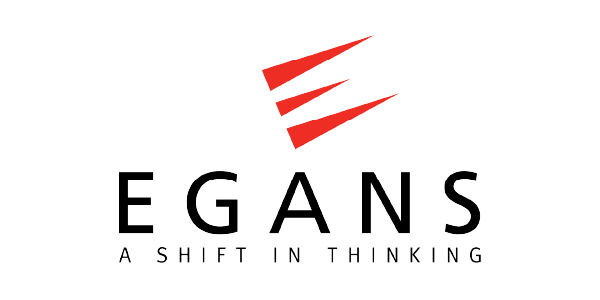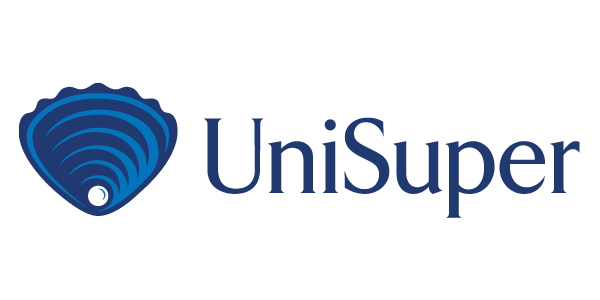2023 Green Gown Awards Australasia
The 2023 Australasian Green Gown Awards recognised 12 universities and 1 TAFE; celebrating 11 winners and 8 highly commended across 10 different award categories. The hybrid awards ceremony streamed live from The Studio at Melbourne connect from 3.00pm AEDT on the 2nd November 2023, hosted by Trent McCarthy – Director of Precincts and Sustainability at Melbourne Polytechnic. ACTS was delighted to welcome special guest presenters, finalists and an audience both in-person and online to announce the winners.
The University of Wollongong were the first winners announced, taking home the Benefitting Society award for their RISE program. This program supports underrepresented groups in regional areas to ‘RISE stronger from the ashes’; building hope and long-lasting sustainability in businesses.
Setting outstanding targets for mitigation, adaptation and engagement to address Climate Change, and well on their way to meeting them, Western Sydney University was announced as winner of the Climate Action award for co-designing towards Climate Positive initiatives.
The University of Tasmania, continuing their efforts as the most highly awarded institution within the Australasian Awards, added a Creating Impact award to their long list of accolades. This year, for their ongoing Species Hotel project, creating big homes for little creatures. They also received a Highly Commended acknowledgement for their work in Leading the Circular Economy.
The inaugural Diversity, Equity & Inclusion in Sustainability award went to The University of Sydney for their crucial work in mapping, protecting and enriching Aboriginal Cultural Heritage landscapes.
The Australian National University was a deserving recipient of the Student Engagement award for the Thrive Kitchen Garden. Their project has fostered social connectedness, improved food literacy and accessibility and has had excellent staff and student collaboration to support their campus community.
The Next Generation Learning and Skills award, recognising achievements in the development of academic courses, skills and capabilities relevant to sustainability as awarded to the University of Queensland won for their Masters of Sustainable Energy program. This is the second year running UQ has won this particular category.
Judges were so impressed with the high calibre of finalists for the Sustainability Champion – Staff award that two champions were awarded as joint winners of the category. Brandan Espe from James Cook University and Jesikah Triscott from the University of Otago both demonstrated outstanding commitment as leaders in the sustainability field.
Fien Van den Steen, from the University of the Sunshine Coast, was awarded as Sustainability Champion – Student. Fien is inspiring accessible sustainability through her advocacy work across a number of student groups at local, national and international levels.
Last, but certainly not least, the University of Melbourne was recognised for their significant and ongoing achievements Leading the Circular Economy and as Sustainability Institution of the Year. The University of Melbourne’s holistic approach to sustainability and their ongoing innovation was on display last night and truly are well-deserving of their recognition.
It’s been a real privilege to announce the 2023 award winners! Following a record number of applications this year, and some of the most difficult selections our judges have ever had to make, the winning initiatives reflect creativity, passion and the tangible impact Higher and Further Education institutions have in the transition to a sustainable future. We hope the inspiring work of our winners, and all the finalists, will help serve as a catalyst for the tertiary sector to continue to advance and expedite our sustainability work and ensure we are equipping learners for their futures as part of a just and fair society. Rhiannon Boyd, CEO, ACTS
Congratulations to all the winners and finalists and sincere thanks to everyone who has contributed to making this year’s awards a resounding success, including our independent judging panel and awards partners. We look forward to continuing the ethos of the Green Gown Awards and ensuring the lessons and examples of best practice are shared within the sector and beyond.
Organisational
Benefitting Society 
University of Wollongong Winner
Climate Action 
Western Sydney University Winner
Creating Impact 
University of Tasmania Winner
University of the Sunshine Coast Highly Commended
UNSW Sydney Highly Commended

Diversity, Equity & Inclusion in Sustainability 
The University of Sydney Winner

Next Generation Learning and Skills 
The University of Queensland Winner
TAFE Queensland Gold Coast Highly Commended
University of Otago Highly Commended
Leading the Circular Economy
University of Melbourne Winner
University of Tasmania Highly Commended

Student Engagement 
Australian National University Winner
Sustainability Institution of the Year 
University of Melbourne Winner
Individual
Sustainability Champion – Staff
Brandan Espe (James Cook University) Winner
Jesikah Triscott (University of Otago) Winner
Catherine Donovan (Massey University) Highly Commended
Sustainability Champion – Student
Fien Van den Steen (University of the Sunshine Coast) Winner
Demi Lawerence (University of Otago) Highly Commended
Trisha Striker (University of Tasmania) Highly Commended
Category criteria
Case Studies
- All
- 2022: Benefitting Society
- 2022: Creating Impact
- 2022: Next Generation Learning and Skills
- 2022: Powerful Partnerships
- 2022: Research with Impact – Student
- 2022: Student Engagement
- 2022: Sustainability Champion – Staff
- 2022: Sustainability Champion – Student
- 2023
- ACTS Staff
- ACTS Student
- Benefitting Society
- Benefitting Society
- Building Back Better
- Climate Action
- Climate Action
- Creating Impact
- Creating Impact
- Diversity, Equity & Inclusion in Sustainability
- Leading the Circular Economy
- Leading the Circular Economy
- Next Generation Learning & Skills
- Next Generation Learning and Skills
- Student Engagement
- Student Engagement
- Sustainability Champion – Staff
- Sustainability Champion – Student
- Sustainability Institution of the Year
- Sustainability Institution of the Year
- Winners
Sustainability Institution of the Year/Winners

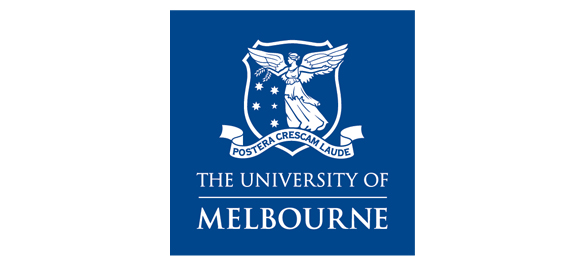
The University of Melbourne's Holistic Approach to Sustainability
The University of Melbourne (UoM) has always been committed to sustainability, implementing environmental improvements since the 1990’s. It made its first public, high-profile commitment with a sustainability framework in 2016, including its Sustainability Charter and first Sustainability Plan 2017-2020. These commitments are holistic across the institution, including leadership & governance, operations, learning & teaching, research, partnerships & engagement. UoM has launched its second Sustainability Plan 2030, demonstrating cross-disciplinary collaboration, governed by its senior Sustainability Advisory Group. Targets align with the UN Sustainable Development Goals, and UoM annually reports progress. In the 2024 QS world university rankings, UoM has jumped up to 14th (from 33rd last year), noting that sustainability has been included as a key criteria in these global rankings. Despite the challenges of COVID-19, in recent years, UoM achieved zero-net emissions from electricity for the second year, invested $12 million in energy-efficiency upgrades, and pioneered innovative approaches such as the Choose to Reuse program. Melbourne Climate Futures, launched in 2021, hosting the inaugural Climate Futures Summit, which provided a forum for 255 in-person and 792 online attendees to hear from an interact with policy, industry, and research leaders. UoM integrates sustainability principles into curriculum disciplines, offering 30 sustainability-focused courses with over 1,000 students enrolled annually. UoM’s achievements serve as a model for other institutions.
Benefitting Society
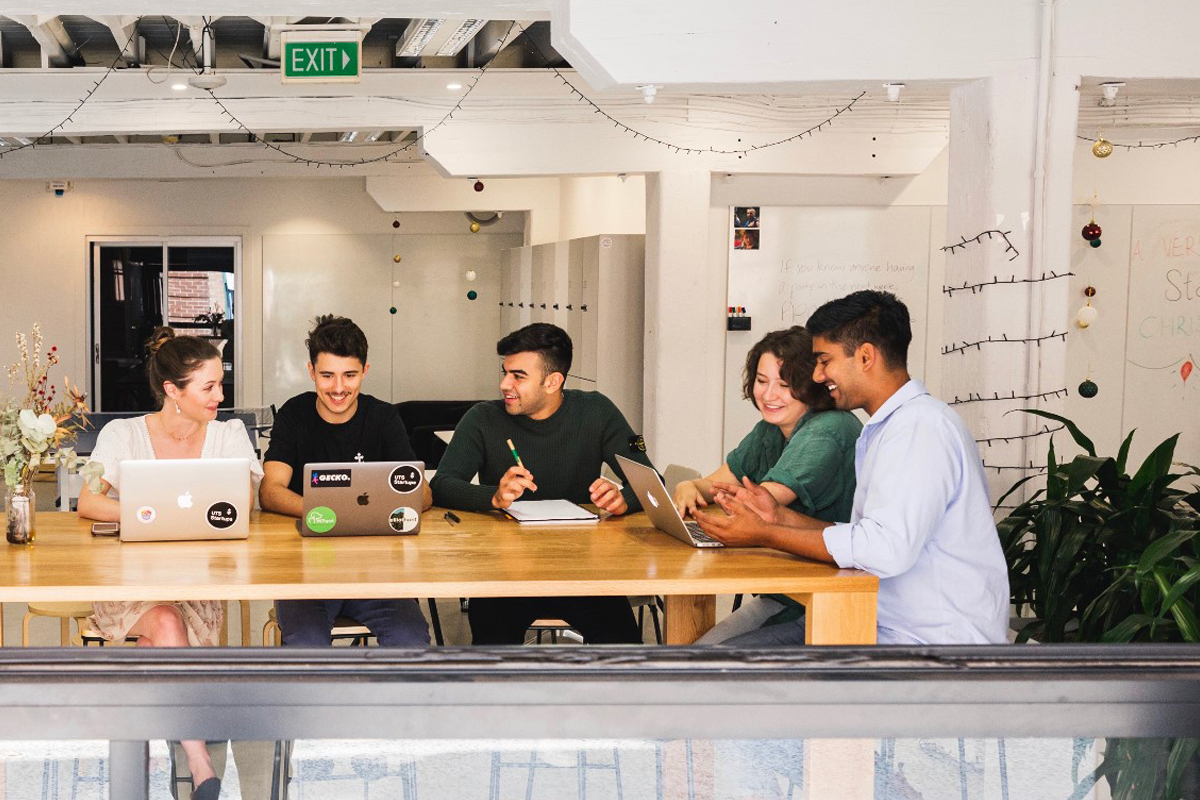
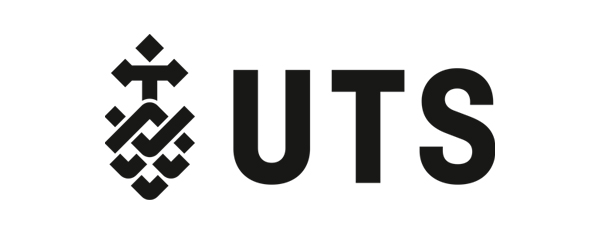
UTS Startups: Enabling sustainable and inclusive self-employment at scale
UTS Startups is the largest Australian entrepreneurship program, revealing and sharing entrepreneurial capability, in order to create and support large numbers of new tech-enabled entrepreneurs.
Distinct from traditional accelerators, incubators and curriculum, UTS Startups does not create a small exclusive group of high-potential entrepreneurs, instead it engages at scale with people to create realistic and sustainable pathways into entrepreneurship.
We want people to see, understand and be supported in emulating entrepreneurial role models that share their capabilities and circumstances. We visit 100 schools each year. We UTS Startups Summit each year for another 30 schools worth of year 9 and 10 students. We run workshops for 5,000 UTS students each year. And we have converted the busiest street corner in Sydney into a hybrid event space for large scale engagement in entrepreneurial storytelling.
We now support 640 student-launched startups, creating 572 new jobs last year and 420 the year prior.
Benefitting Society
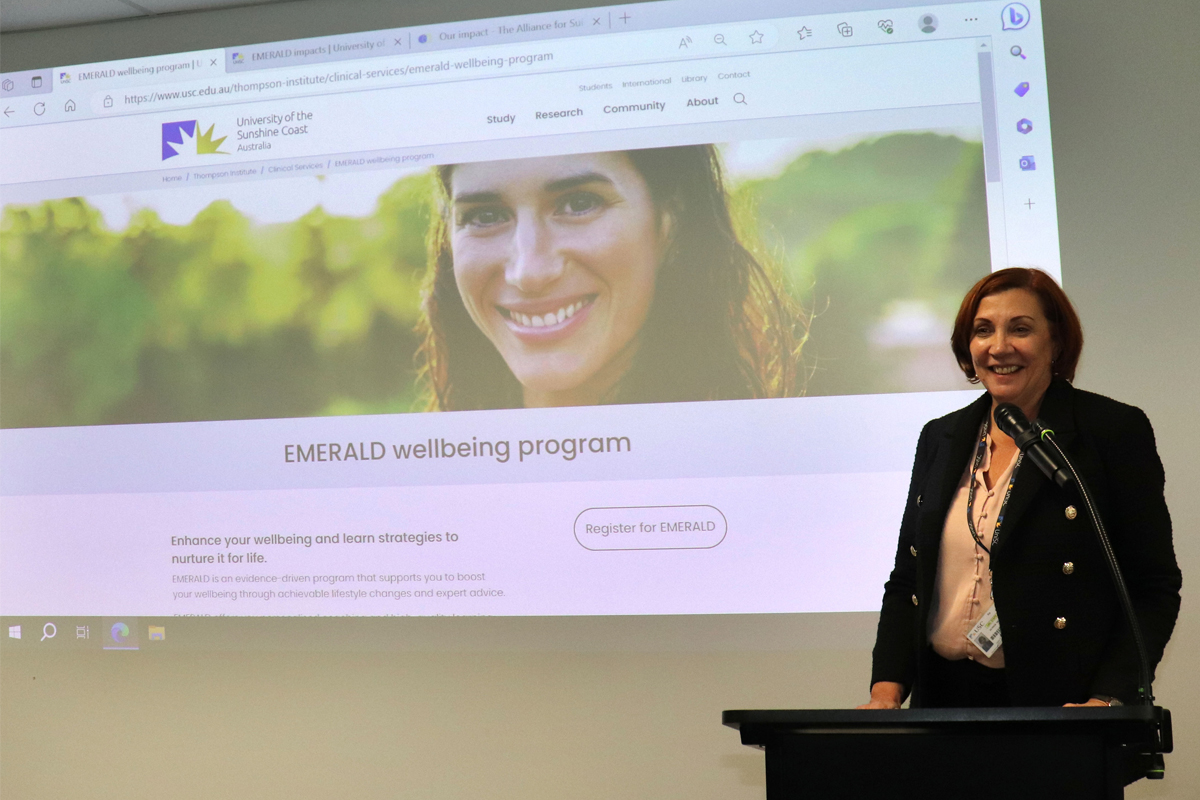

Unearthed Gem: cultivating community mental wellbeing through the university-led EMERALD program
UniSC’s Thompson Institute created the EMERging Anxiety, Loneliness, Depression (EMERALD) program in 2020 in rapid response to the COVID-19 pandemic. The program addressed the anticipated increase of emerging mental health challenges in the population as a result of pandemic impacts.
The personalised 8-week mental health program uses telehealth coaching and online learning modules to support adoption of lifestyle strategies proven to boost mental health. It supports individuals to self-manage emerging mental ill health symptoms, improve their psychological wellbeing, and increase their ability to manage life stressors.
It’s unique in its focus on prevention and early intervention; use of evidence-based lifestyle medicine; the translation of research into practice for the benefit of community; and ease of access to multidisplinary consultants and education.
Benefitting Society/Winners

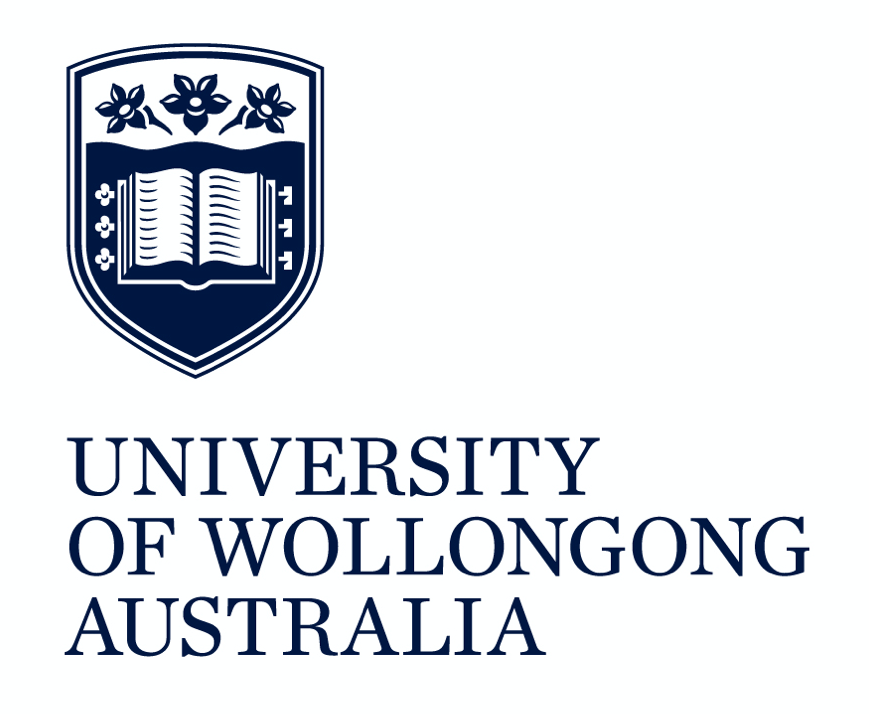
Rising stronger from the ashes: UOWs RISE program building hope and long-lasting support for regional entrepreneurs
iAccelerate is the University of Wollongong’s world-class business incubator and accelerator that is committed to helping build and scale sustainable businesses that have a positive impact. An important part of iAccelerate is to support underrepresented groups in entrepreneurship, as exhibited through the iAccelerate RISE Program. Building on a 5-year partnership supporting entrepreneurs in the Bega Valley, in 2021 the RISE program, was established. RISE delivered education to support promising entrepreneurs and business owners in bushfire devastated regions of NSW. The program was jointly funded by the Commonwealth and NSW Government under the Disaster Recovery Funding Arrangements Bushfire Local Economic Recovery Fund (BLERF).
The RISE program introduced the UN SDGs during the first module which were embedded throughout the program. Since RISE’s delivery, new, sustainable, and socially responsible jobs and business models have prospered in the local regions. This has led to expansion of RISE, with the co-creation of RISE First Nations.
Climate Action


Driving Towards Tomorrow’s Campus with Vehicle-to-Grid EV Technology
As part of Flinders University’s drive to innovate and become a leader in climate action, the University launched its Vehicle-to-Grid (V2G) initiative. This involved installing and maintaining 20x V2G and smart chargers for its growing electric vehicle fleet. Leveraging 100% renewable energy generated by ENGIE’s Willogoleche Wind Farm and Flinders University’s solar power systems, this enables the storage of renewable energy in EV batteries to be discharged on campus during peak demand periods. Hence, allows for these EV fleets to operate as a Virtual Power Plant (VPP) to deliver peak demand management and optimization of behind-the-meter generation.
Overall, this initiative demonstrates the reliability and scalability of bi-directional and uni-directional smart-charging systems for EVs in reducing GHG emissions while facilitating teaching, research, and innovation opportunities. Moreover, it exemplifies a sustainable and innovative solution to scale energy storage technology and increase renewables.
Climate Action
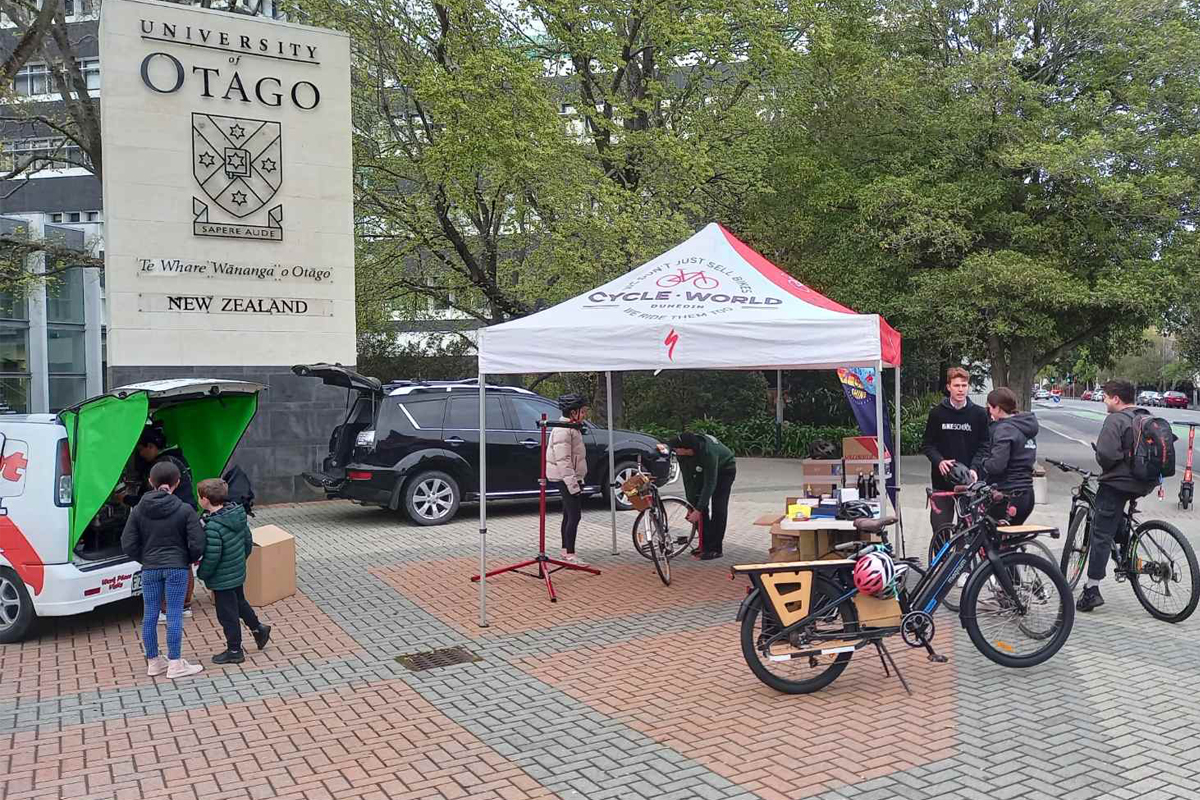
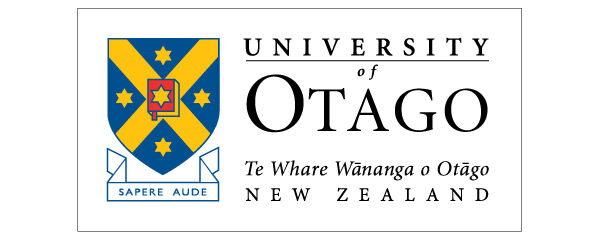
Our journey to 2030: net carbon zero at Otago
Our journey to net zero carbon by 2030 and beyond at the University of Otago is informed by the wayfinding approach of Polynesian explorers and contemporary Indigenous academics’ focus on wayfinding leadership.
Te Ao Māori-based principles underpin our mahi (work) to reflect our bi-cultural sustainability approach, which centres on enhancing all lifes’ health and wellbeing (orangatanga). Mātauranga (knowledge, learning) is wrapped around everything we do, from projects using living labs for decarbonisation and native forest regeneration to engaging students through coursework, events and work opportunities.
Our emissions decreased 32% from 2019 and University leadership endorses ambitious category-based emissions targets beyond 2030 that include ensuring we don’t lose gains from reduced travel during the pandemic.
As active local, national and international network members, we share information to maximise our work’s impact – including reducing menu ingredients’ and student travel’s carbon footprint. One network is New Zealand’s first city-based Zero Carbon Alliance, in Ōtepoti|Dunedin.
Climate Action/Winners


Co-Design towards Climate Positive
In 2021, Western Sydney University committed to the UN-led “Race to Zero for Colleges and Universities” setting targets of Carbon Neutral 2023 and Climate Positive 2029. This proposal outlines the co-design strategies underway for mitigation, adaptation, engagement and broader integration. In 2023, Climate Active certification was achieved as Carbon Neutral, and a 5 Year Carbon Transition Plan was developed with Veolia Energy Solutions and key functional representatives building upon carbon engineering and co-design. Resilience planning for adaptation has followed two iterations adapting the Resilient Cities model and lessons learned from the 2019-2020 bushfires. Engagement has focused around Living Labs, building upon established initiatives with developing strategic Nature Positive, Circular Economy and Smart Building clusters. These provide the emerging strategic narrative towards our Climate Positive target.
Creating Impact


Where knowledge meets habits: Empowering students for a sustainable tomorrow
Our online Sustainability Challenges offer participants an engaging, self-paced learning experience centered around a specific United Nations Sustainable Development Goal (UNSDG). Requiring minimal resourcing and at zero-cost to participants, we’ve created replicable, compact, scalable, and impactful learning opportunities that result in real impact.
The Challenges follow a structured process that moves participants from knowledge gain to simple action to celebration, to establish small but mighty habits relating to waste and carbon emissions. This approach recognises that knowledge alone is often insufficient to drive behaviour change, and that ease of action and celebration are crucial components in creating sustainable habits.
Creating Impact/Winners
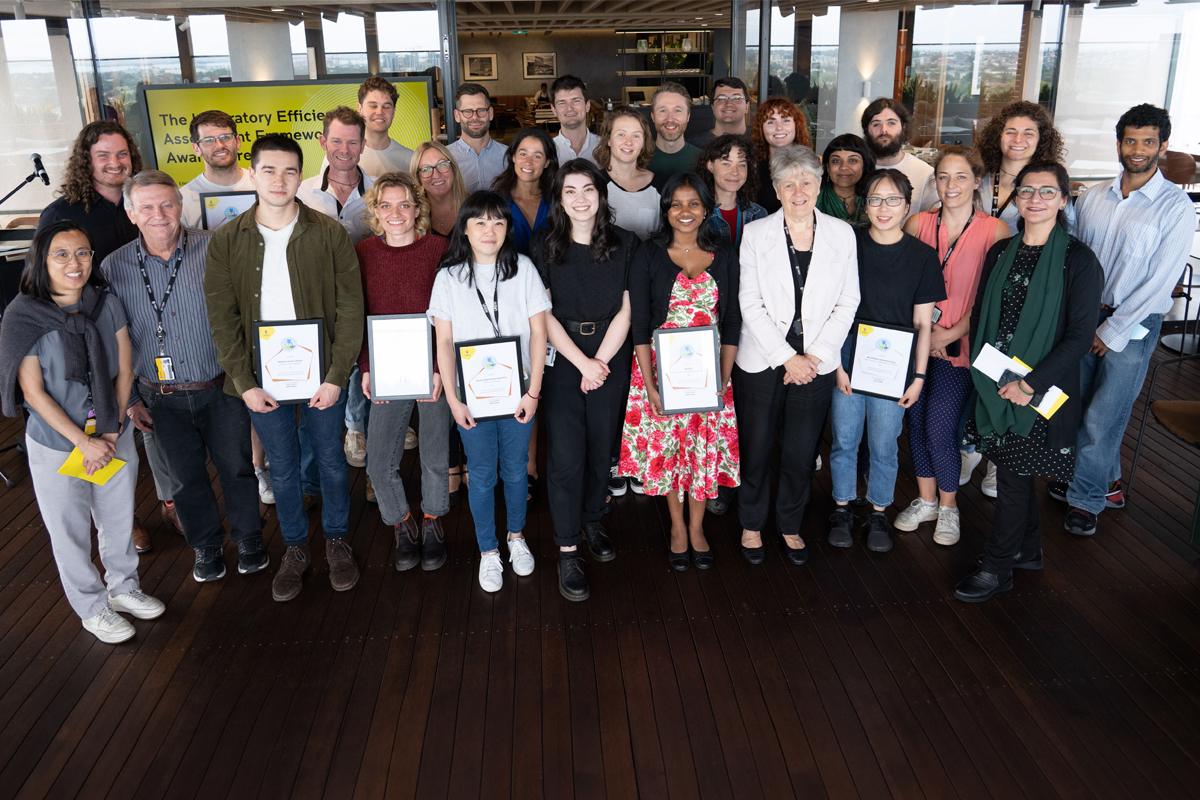
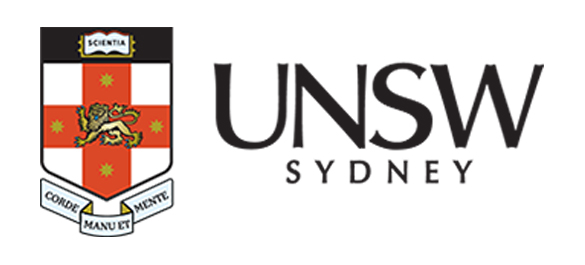
Turning Over a New LEAF: Driving sustainability in laboratories
The Laboratory Efficiency Assessment Framework (LEAF) is an internationally-recognised accreditation that aims to improve environmental outcomes and build a culture of sustainable practice in laboratories around the world. LEAF is hosted on an online platform that supports laboratory groups in taking achievable, lab-specific actions to reduce their environmental impact. After registration, laboratories progress through Bronze, Silver and Gold accreditation levels based on sustainability achievements. Using in-software emission calculators, LEAF provides quantifiable data for efficiency and sustainability.
In 2021, UNSW became the first organisation in Australasia to receive LEAF accreditation. To date, 30 UNSW laboratory teams have been registered, with 5 achieving Silver accreditation, and a further 19 achieving Bronze. UNSW laboratories have accomplished significant reductions in greenhouse gas emissions, water consumption, laboratory expenses, and single-use plastics usage. In 2023, the UNSW LEAF program is continuing to grow, recruiting more laboratory groups and is on track to achieve the first Australasian Gold accreditation.
Creating Impact/Winners


Putting the Uni in Community: regional university empowers local community to reduce suicide and improve mental health outcomes
The Alliance for Suicide Prevention addresses the Sunshine Coast’s unacceptably high suicide rate through a framework that is creating population-based change. Led by the University of the Sunshine Coast’s Thompson Institute, the Alliance brings together 165 community, private, and public sector organisations, working to create meaningful change through public awareness, community training, upskilling of health professionals and supporting high-risk groups. Alliance initiatives have benefitted 30,692 people through the program’s award-winning engagement model.
More than 3,419 people have completed the Alliance’s suicide prevention training programs to help them identify the signs that someone may be thinking of suicide. Sectors with clients at higher risk, such as domestic violence, housing, and Indigenous health, are offered fully funded training in suicide prevention skills. This targeted approach has allowed the Alliance to have a powerful impact on upskilling key people in the community to help address suicidality in the region.
Creating Impact
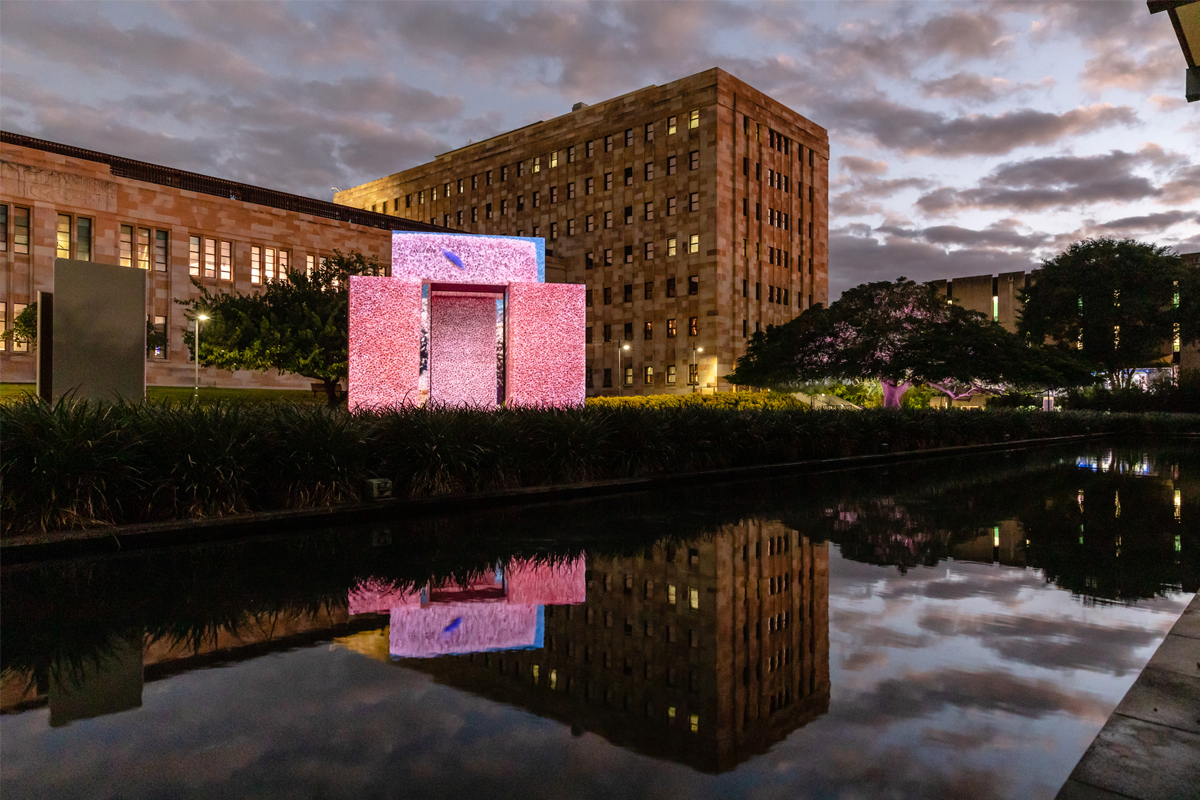

Building carbon neutral capabilities at UQ
Art and accounting may seem unlikely bedfellows for creating sustainability impact, but UQ successfully brought the two together to achieve carbon neutral certification for its 2022 Oceanic Thinking event. Running from February to June at UQ Art Museum, the exhibition presented new ways of understanding the ocean and our planet. It also provided UQ with a practical opportunity to increase its understanding and capability for carbon emissions accounting. Learnings will guide further discussions around how this could potentially be reproduced for other events or operations. Combining these two objectives enabled the University to deliver a compelling sustainability story that resonated with 13,650 students, staff members and external visitors who engaged with the five-month long art event.
Creating Impact/Winners


Species Hotel: Big Homes for Little Creatures
From humble beginnings in 2016 as a first-year Architecture and Design course project with a tiny budget, the University of Tasmania’s Species Hotel project is having a huge impact in Tasmania and beyond. Centred on the creation of bespoke timber sculptures that serve as homes for threatened native animal, insect and bird species, it has grown to directly involve almost 400 UTAS students, as well as schools, environmental groups, artists, farmers, scientists and members of the wider community. The impact of the project has expanded exponentially through extensive media coverage, journal articles, a podcast, conference speaking opportunities, exhibitions and widely shared social medial posts (#specieshotel), all of which have provided inspiration to others to conduct similar projects in their own location.
Diversity, Equity & Inclusion in Sustainability
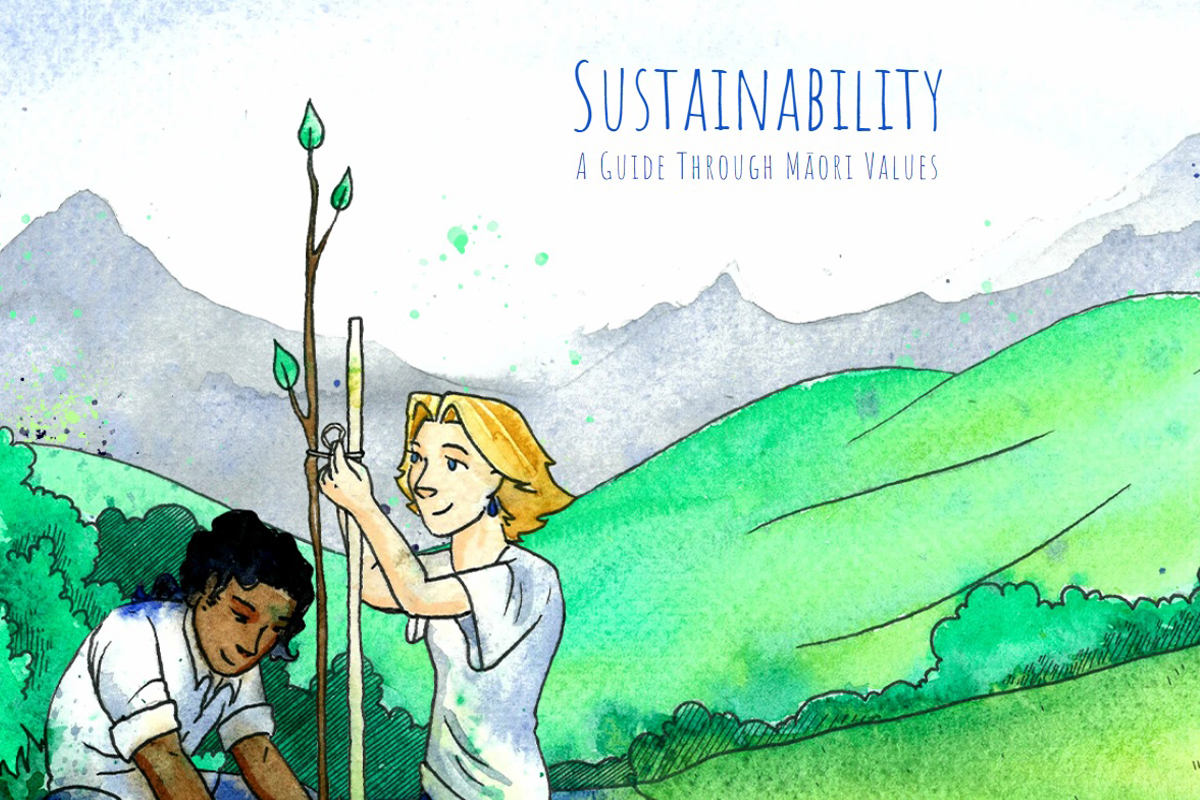

Mātauranga Māori and Sustainability: Guiding Community Engagement With Indigenous Values
Through a collaborative design process involving Māori and Pākehā (non-Māori) students and academic staff at Te Herenga Waka – Victoria University of Wellington – a unique online resource was recently developed for the university community that maps foundational values of Mātauranga Māori to principles of sustainability. The colourful website (accessible on the University’s Sustainability website) uses bespoke illustrations and animations to support the translation of key terminology from Te Reo to English. The intersection of visual and text-based communication enables the illumination of diverse and complex information, including: the definition of Māori values and their correlation to Western concepts of sustainability, exemplars that highlight how the university is supporting these values through the Living Pā project, and a series of proposition to elicit everyday participation with the values introduced for staff and students alike. This culturally-contextual project celebrates the value of indigenous worldviews in addressing sustainable development both on campus and beyond.
Diversity, Equity & Inclusion in Sustainability/Winners

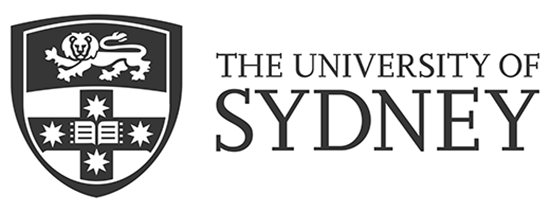
Mapping, protecting and enriching Aboriginal Cultural Heritage landscapes
The mapping, protecting and enriching Aboriginal Cultural Heritage landscapes project seeks to enhance existing relationships with local Aboriginal communities and Elders, and recognise the tangible and intangible cultural heritage embedded in landscapes at regional and remote campuses. At Narrabri NSW, scar trees and axe grinding grooves were noted to be on site by local Gamilaraay community members, which formed the foundation of the project to map and assess cultural assets, and to guide future planning to best preserve, acknowledge and protect sites.
This project is significant as it is facilitating exchanges of knowledge by prioritising local values and people in the cultural heritage mapping process, and is creating a safe space for sharing knowledge, generating recommendations and action plans, and hosting community days to implement tree planting days (involving staff and students).
Finally, this project has enriched the implementation of sustainability initiatives to encompass social, governance, and enhance operational endeavours.
Diversity, Equity & Inclusion in Sustainability


UTS Climate Impact Lab: working with social housing residents to save energy, reduce bills and cut greenhouse pollution
UTS has a plan to be climate positive by 2029. This vision contributes to our outreach work and partnerships with the local community. By implementing strategies to help reduce the carbon footprint and emissions in our local area – with a specific focus on social and public housing – this project sought to contribute to our carbon reduction goals and vision, whilst simultaneously enhancing the wellbeing of local public housing residents. The project aimed to:
- reduce household energy bills
- improve thermal comfort and health
- empower the Glebe community to take action against climate change
- reduce greenhouse gas emissions (with UTS facilitating local ‘climate positive’ actions).
This initiative is distinct in its elevation of community voice and experience. By drawing on both contextual and disciplinary expertise, the approach helps ensure that decisions are well-informed and have the best potential of take-up and success.
Next Generation Learning & Skills
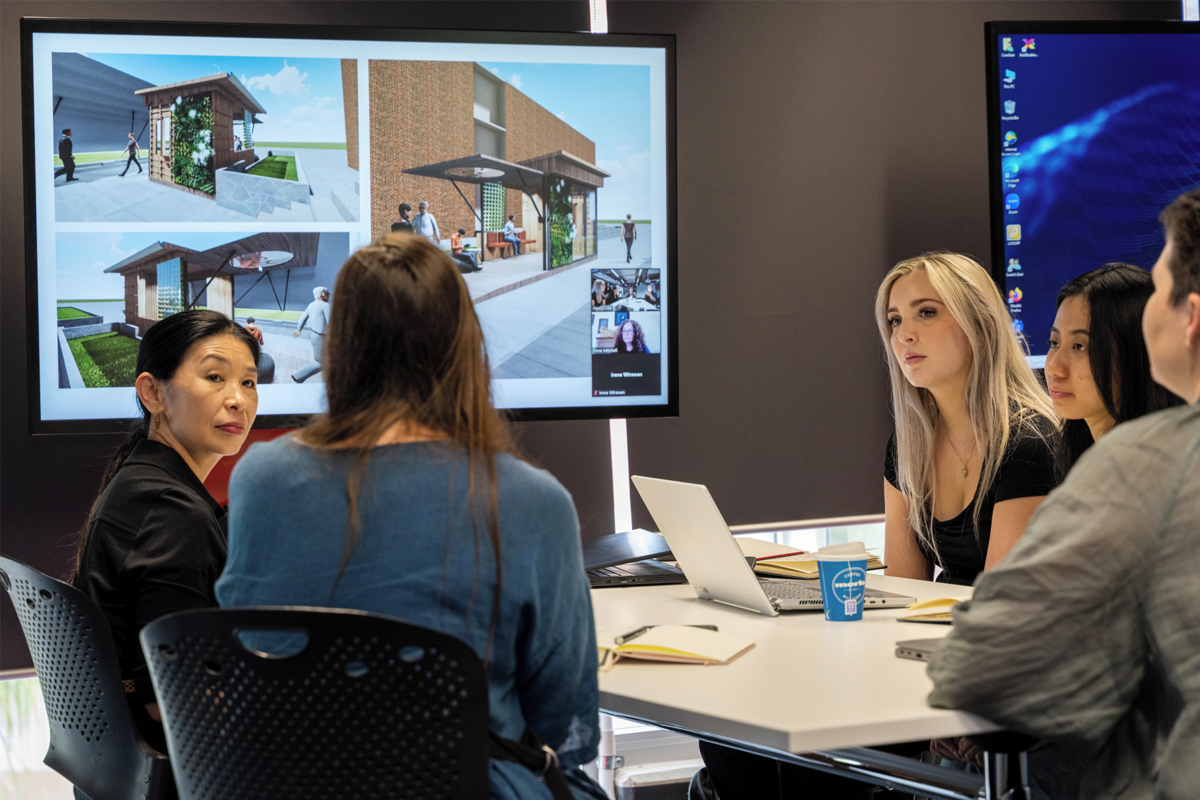
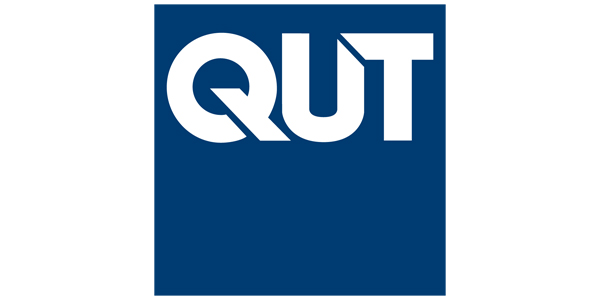
The SHED (Sustainability in Higher Education) project
The SHED (Sustainability in Higher Education) project represents a skills-focused sustainability-related design project within QUT undergraduate courses and includes work-based learning with the outcome being a space for sustainability activities and education on campus.
The SHED project was born from an idea of creating a small sustainable building, that could become an on-campus hub connecting staff, students and the community to sustainability knowledge and discovery. Through effective collaboration across organisational areas of the university, students across multiple units and disciplines were provided a project where they could apply their design ideas and creativity, engage with clients, seek guidance from Indigenous Australians, undertake professional work experience, and create a living design using the principles of circular economy and connection to Country that would help to achieve organisational sustainability outcomes across education and operations. This project seamlessly integrates sustainability and campus to Country principles and highlights the significant interrelationships between them.
Next Generation Learning & Skills/Winners
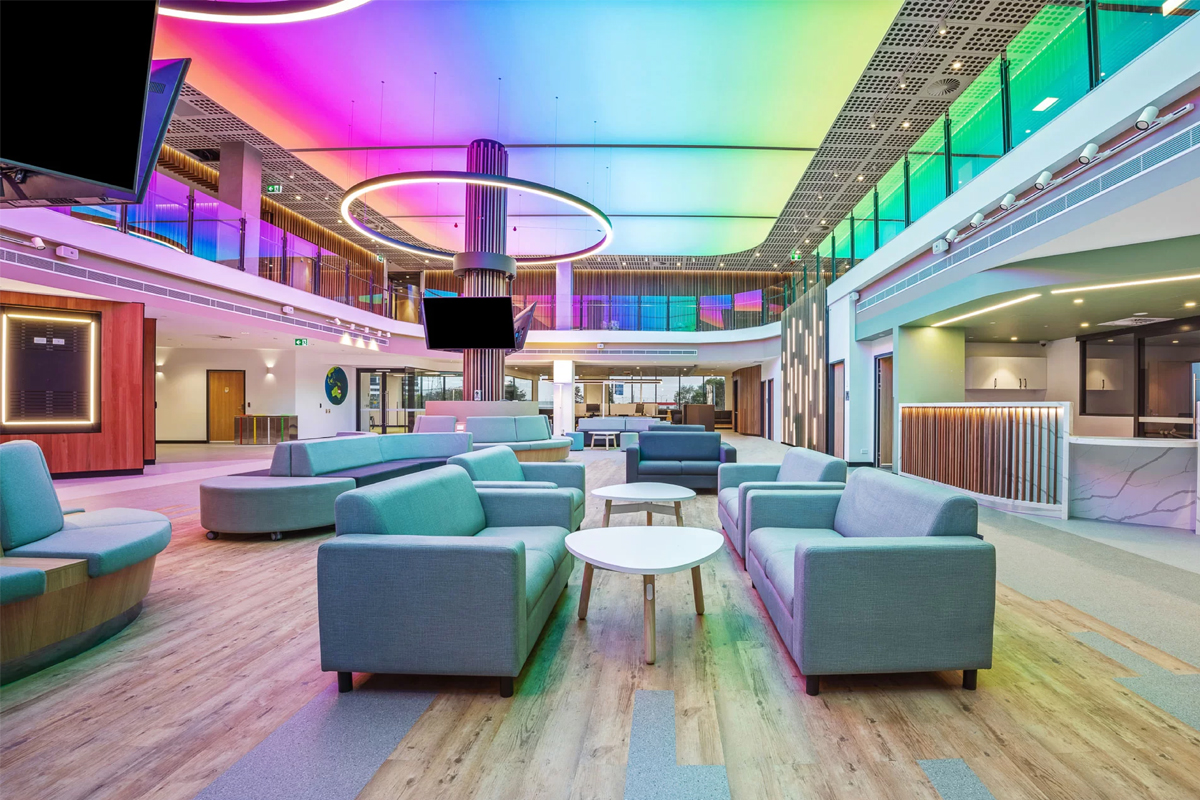
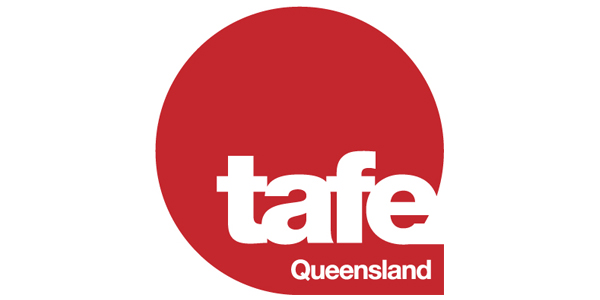
Embedding sustainability into everything that we do
TAFE Queensland Robina Campus has been purpose-built and designed to be sustainable in building, fit-out, procurement, curriculum, operations, governance and culture. It is TAFE Queensland’s flagship for demonstrating their commitment to social and environmental sustainability. Our priorities align with the United Nations (UN) Sustainability Development Goals (SDGs) under the banner of people, planet and performance.
Our educators have completed a professional development process to embed sustainability knowledge and practices in all aspects of delivery, assessment, and campus community life which ensures that every student, no matter what they study, is fully immersed in the goals of the campus.
The campus is a living laboratory – students are engaged with green-skilling programs, lunchbox engagement activities and opportunities to work with like-minded partners. Increasing and improving accessibility is supported with Technology Enabled Active Learning (TEAL) spaces. The students are being empowered and mobilised as global citizens through increased awareness of sustainability issues.
Next Generation Learning & Skills/Winners
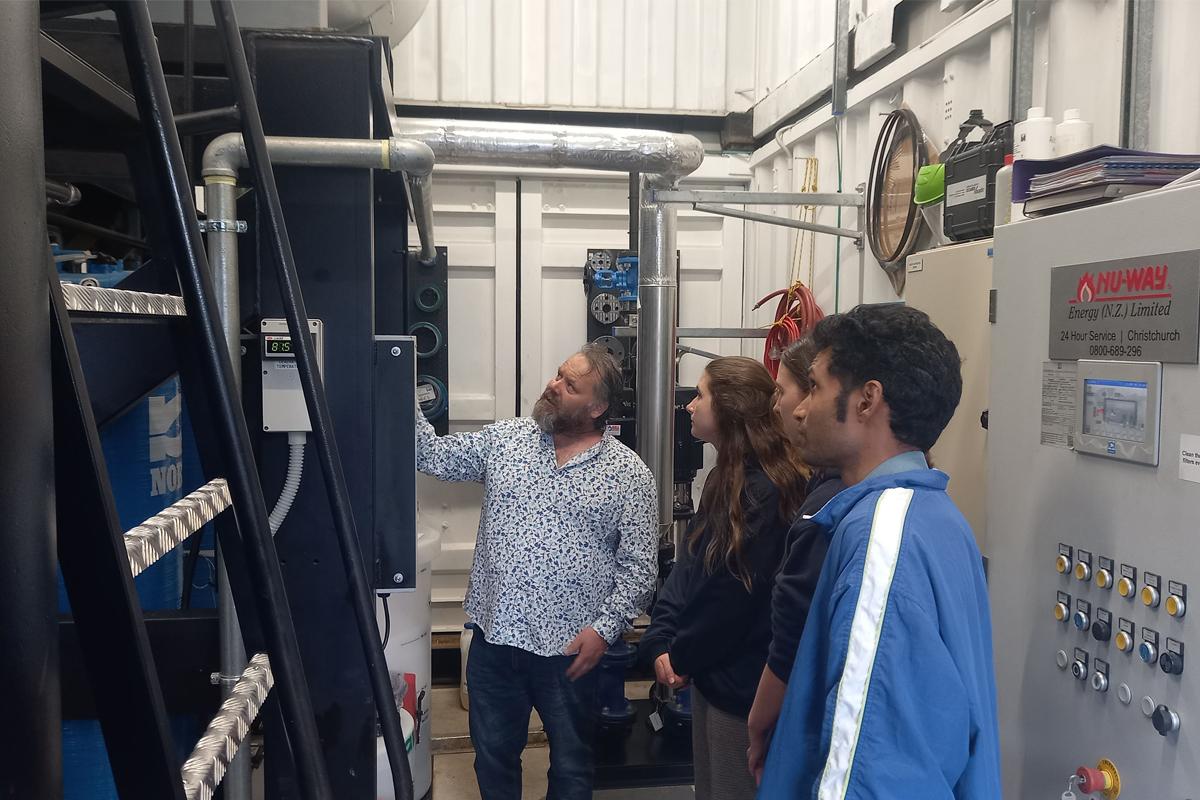

Pūhau ana te Rā: Creating tailwind conditions for a thriving future
The New Zealand Climate Change Commission (CCC) referred to creating “tailwind conditions” for a lower emissions Aotearoa. This speaks directly to the role of Tertiary Education in contributing to a thriving future.
The phrase Pūhau ana te Rā refers to travelling with sails full of wind. In this context, it is a metaphorical reference to undergraduates and emerging researchers creating tailwind conditions and accelerating our progress towards a thriving future.
Each summer students from different programmes and stages of study undertook 12-week scholarship projects hosted in the Sustainability Office and funded by a range of collaborators. Projects addressed real sustainability issues in specific contexts, and frequently used the University as a living lab. Project reports are presented at a public symposium and the research is captured in a new open access journal. The journal now an options for capturing any undergraduate or emerging researcher contributions that contribute to a thriving future.
Next Generation Learning & Skills
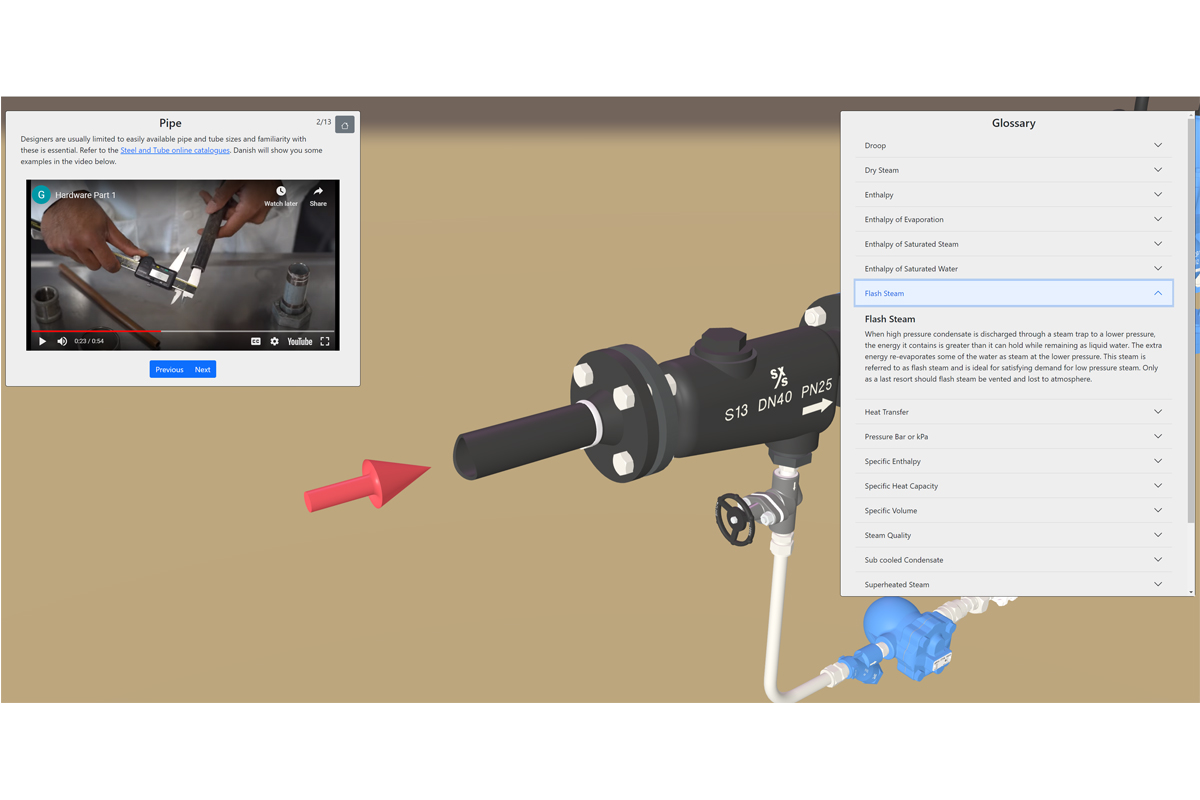
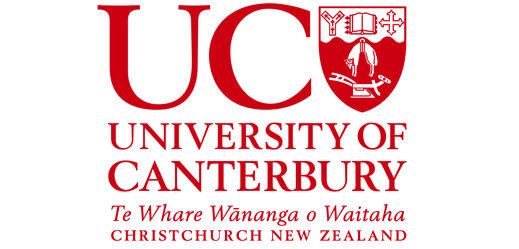
Next Generation Virtual Labs and Field Trips (ALSDO: The Alternative Lab & Studio Delivery Options Project)
The ALSDO Project (ALSDO) was developed from the need to identify alternative, pedagogically sound methods of delivering practical hands-on teaching in a world where physical access to labs may not always be guaranteed. The cross-campus collaboration of academic and technical staff has continued within the Sustainability Hub with the recognition that the materials developed to support remote teaching and learning also offer a range of sustainability benefits. ALSDO projects include:
- Virtual Labs (VL): hands-on, practical learning material online (e.g. interacting with a functioning steam conditioning apparatus; learning how to use pipettes, conducting a Videofluoroscopic Swallow Study of a patient). Supports not only immersive VR headsets, but also other devices (laptops, smartphones).
- Virtual Field Trips (VFT): innovative learning experiences, including authentic role-play games and engaging experiences (e.g. walk-through of a hospital ward; trip exploring volcanoes and their hazards).
Next Generation Learning & Skills/Winners
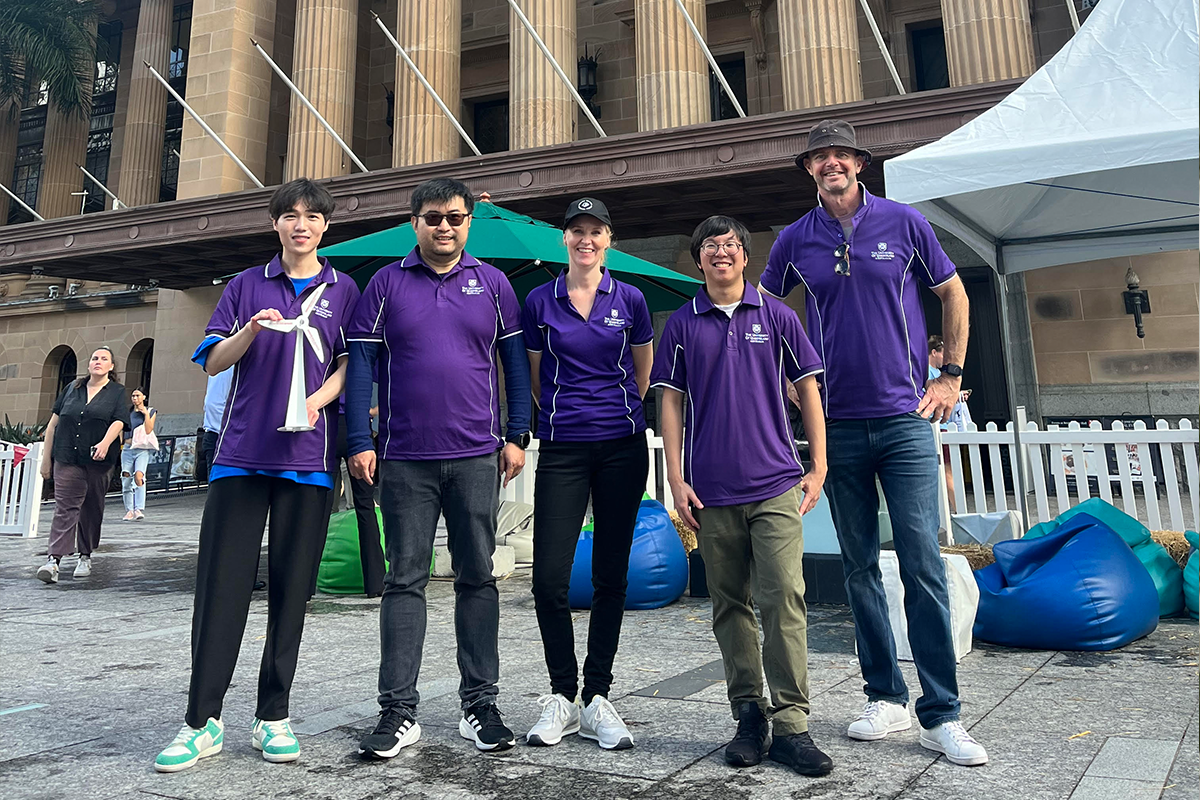

UQ’s Master of Sustainable Energy: a successful multidisciplinary model to educate leaders for a Net Zero future
The University of Queensland (UQ)’s Master of Sustainable Energy Program educates leaders for the transition to a Net Zero energy future. It provides a multidisciplinary learning experience with a focus on industry engagement through teaching, an advisory board and a dedicated alumni network. The Program has experienced significant growth since its inception in 2017, and graduates have achieved strong employment outcomes across more than 30 countries worldwide. The target market is early-mid career professionals, with the flexible program allowing students to pivot their careers to focus on the future sustainability of energy generation and use. The Program addresses a crucial workforce bottleneck, as Australia requires an additional 700,000 people in the energy workforce to achieve Net Zero by 2050. UQ’s Sustainable Energy Program serves as a successful model with its flexibility, multidisciplinary approach, and industry partnerships, which can be replicated across Australia to ensure a sustainable future.
Leading the Circular Economy
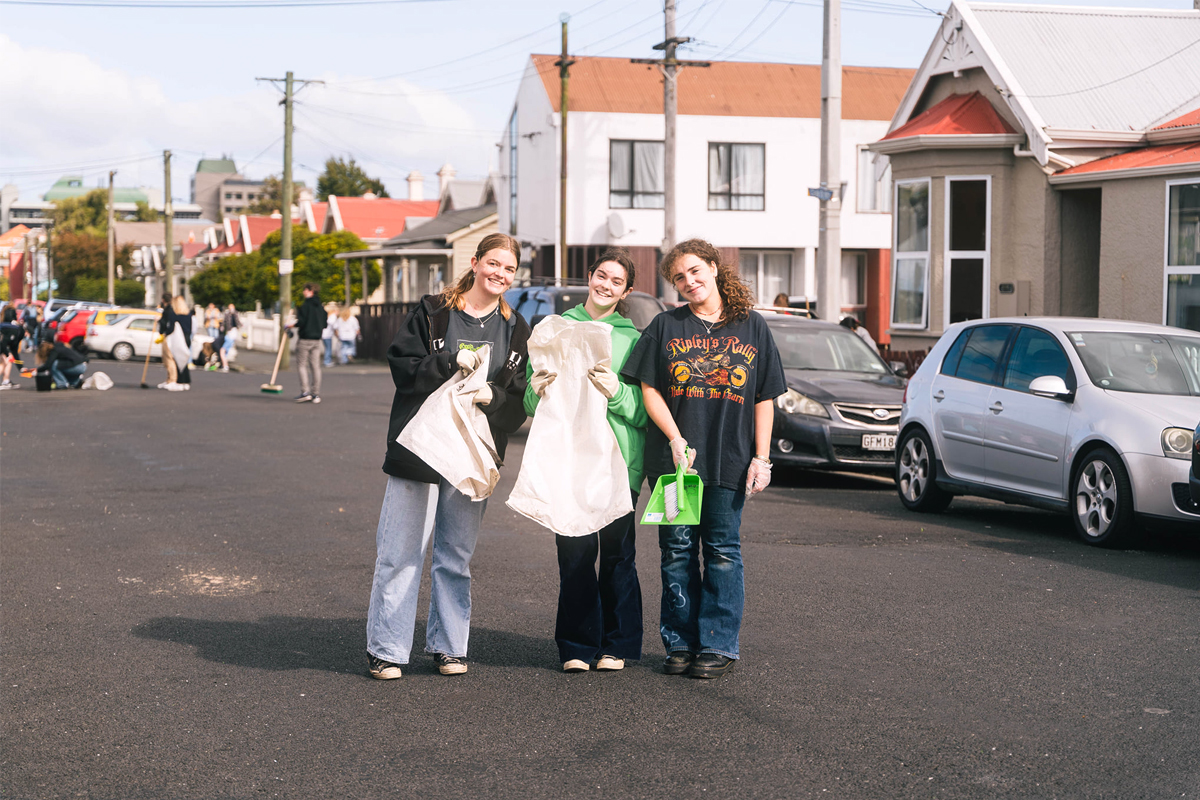

Drop For Good and Shop For Good – students supporting students through the circular economy
In a New Zealand first – and possibly Australasian – Drop For Good and Shop for Good combat thousands of students relying heavily on skips at year-end when packing up flats and buying new goods for flats at the start of the year.
This collaboration between the University of Otago Toitū te Taiao – Sustainability Office and the University of Otago Students Association coordinates the massive task of organising volunteers to collect students’ many unwanted goods for free, then to sort, repair and test those goods for storing until the following year, when volunteers help sell them to students for $NZD20 or less each at the large-scale Shop for Good. The sale’s income pays for Drop for Good.
This circular economy working model has, in three years, diverted about 213 tonnes from landfill, sold 3,700 items,and used about 1110 volunteer hours,while encouraging students to think sustainably by offering them easily accessible, affordable options.
Leading the Circular Economy/Winners
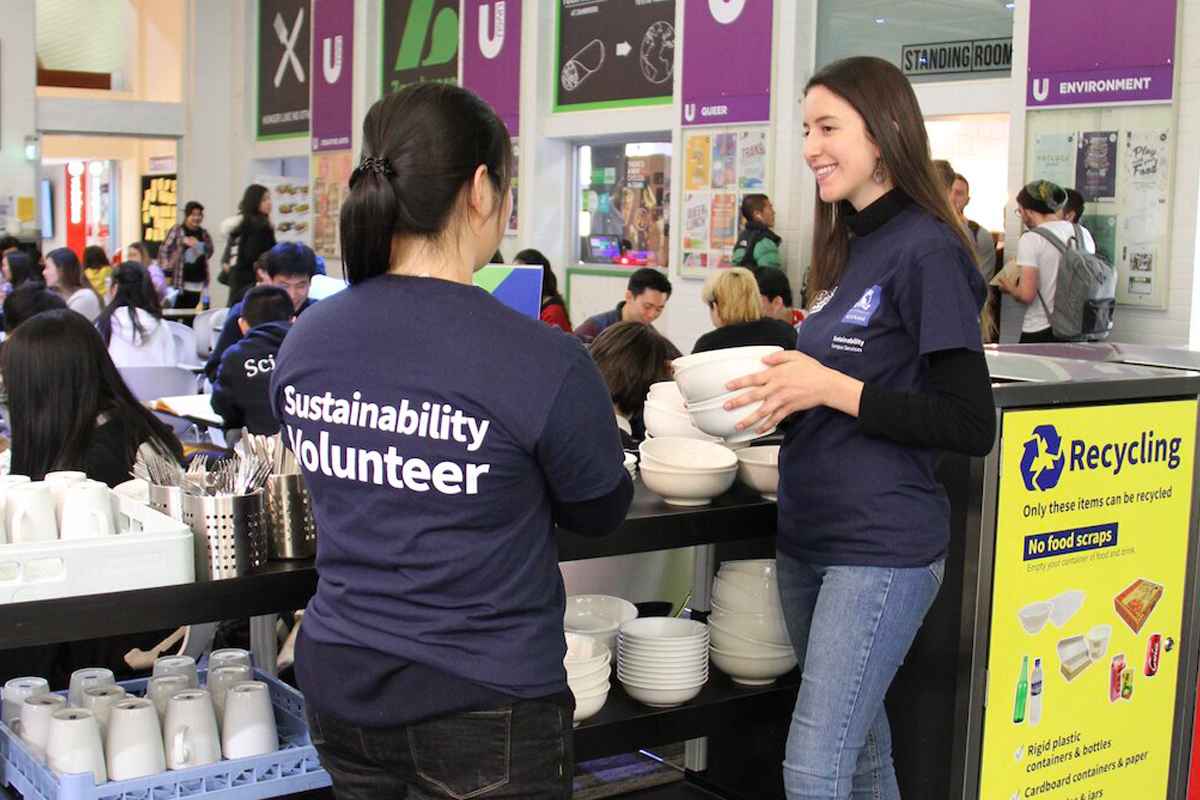

Creating a just and circular economy by Choosing to Reuse!
The University of Melbourne’s circular economy journey began in 2012 with the launch of the award-winning Furniture and Equipment Reuse Program (FERS), providing second-hand office items to the University community, and the student-led Wash Against Waste reuse program, both diverting thousands of items from landfill, annually. In 2019 the University piloted a substantial upgrade for its retail community, launching the Choose to Reuse Plate Program (C2R), a reusable dishwashing service, which diverted 240,000 items from landfill in its first 6-months and the Choose to Reuse Events Service. In 2020, it launched a new Reuse Vending Machine (selling reusable items) and Green Caffeen, a swap cup program.
During this time, the University updated retail contracts to include sustainability clauses (e.g. compulsory dishwashing, sustainable and ethical procurement) for all tenants in Union House and the new Student Precinct. With the opening of the Student Precinct (6 buildings) in 2022, the inclusion of C2R was compulsory, with a dedicated waste hub, waste scales and a food waste processor, the University was able to provide reuse services in a way it never has before. These efforts align with the University’s Sustainability Plan 2030, which includes dedicated waste and circularity targets.
Leading the Circular Economy/Winners
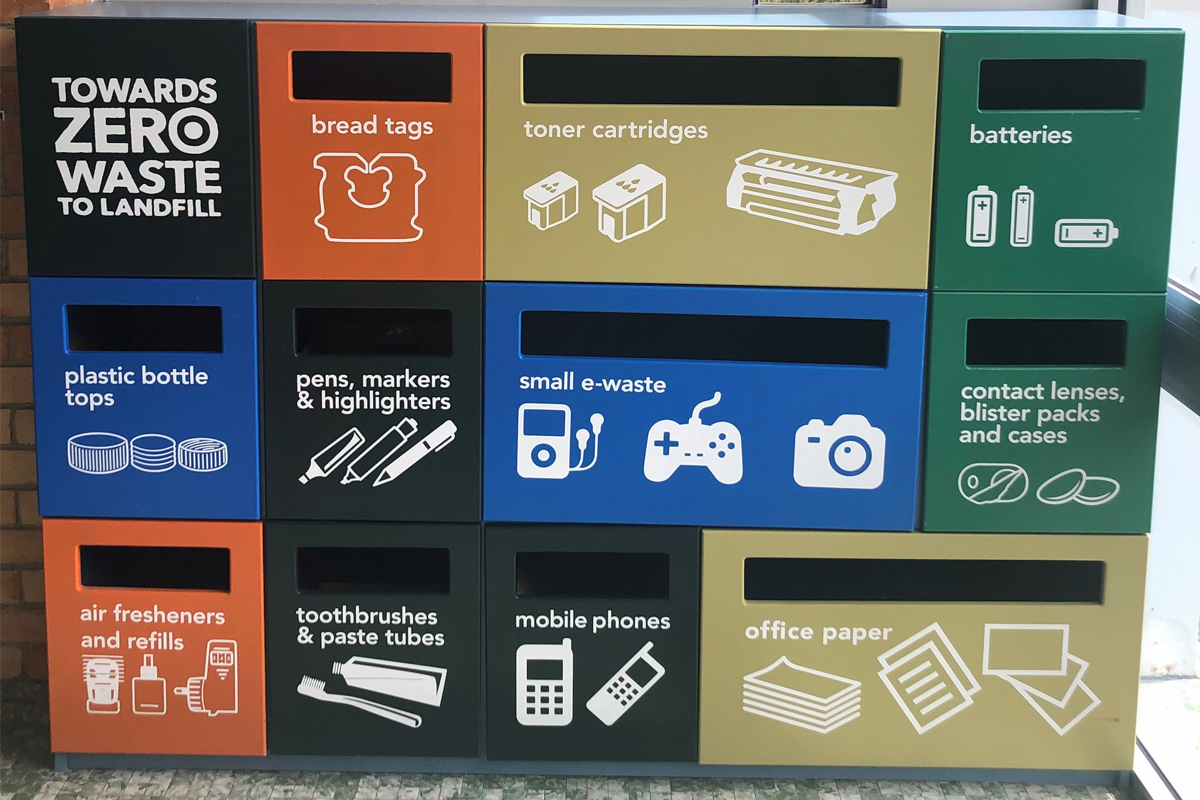

Closing the loop for holistic circularity
The University of Tasmania (UTAS) has delivered significant changes regarding ‘waste’ by bringing together procurement, re-use, recycling, composting, engagement and data. Initial attempts to address our waste issues a decade ago sometimes had us running in circles but broadening our approach has led to a circularity journey over the past few years. This journey has delivered significant financial savings and achieved early wins for further commitments in a future-focussed Waste Minimisation Action Plan targeting a minimum 25% reduction of landfilled waste by 2025. We have delivered new buildings with in-built ‘deconstructability’ in mind as well as re-using materials from other sectors for structural components. Fitting out the builds and major refurbishments comes from excess furniture within UTAS and what we cannot re-use is donated or disassembled for recyclable components. Ensuring organics waste is collected for composting and providing recycling options beyond the co-mingled bin are also elements of a circular mindset.
Student Engagement/Winners
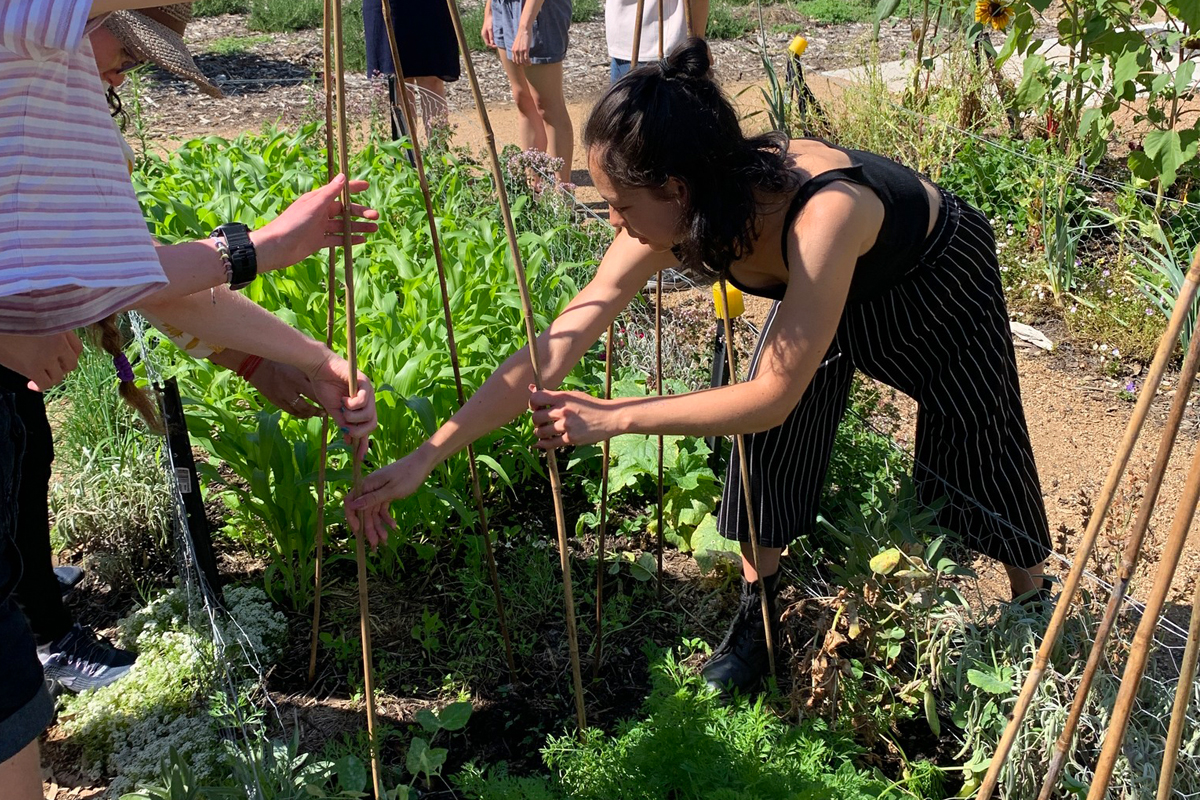

The ANU Thrive Kitchen Garden
The Kitchen Garden is a co-operative community for all ANU students that aims to bring the community together to share and connect with nature, each other and to enjoy growing and eating fresh, healthy food. There are two gardens on campus, each one has regular gardening sessions including an element of growing food, food preparation, skill sharing followed by a communal lunch.
The Kitchen Garden Program offers ANU students the opportunity to:
- work creatively and cooperatively, share skills, knowledge and learn together;
- build confidence and capability to nurture and grow food and to prepare fresh, healthy, budget friendly and seasonal meals;
- create personal connections and networks through a Kitchen Garden community, a safe, respectful, and inclusive space;
- develop and build on life skills and capabilities beyond the classroom; and
- engage in volunteer work and contribute to the local community as an active citizen and share a sense of purpose with others.
Student Engagement


Sustainability Leaders creating real impact!
La Trobe created a unique Sustainability Leaders volunteering program to increase engagement with students on campus and empower them to act against waste and promote sustainability. It included the following initiatives:
- Promoting the reusable crockery implementation,
- Increasing knowledge action of other students on campus to diversion comingled recycling and organic waste from landfill.
- Focus on waste audits and data,
- Improved signage through new waste posters for students living on campus.
- Collaboration with Cirka (our cleaning and waste partner) to create a waste wall and;
- Learning all things sustainability (net zero, biodiversity, waste, reusables, engagement)
These initiatives yielded significant results and with a reduction in waste contamination by almost 40% at the residential buildings and engagement with over 80 groups of people for the Reusable Revolution.
Sustainability Champion – Staff/Winners

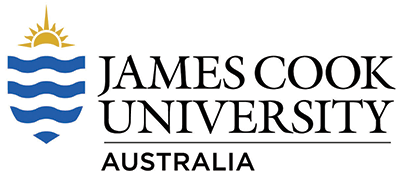
Brandan Espe
Environmental Officer / Acting Grounds Supervisor
Brandan has brought over 50 federally listed Endangered species of plant into the James Cook University living collection, many of which have never been cultivated and are found in no other collection in the world.
Of these, over half have been sustainably wild collected, inclusive of field and clone data, so they can be used for ongoing conservation, research and teaching, the remaining being sourced from private and partner organisations through favours of service or trades.
He personally funded the project from 2019-2022, until funding was awarded for the program due to its success, with the program now being engrained into the Universities landscapes for ongoing management should he leave JCU, creating a threatened species legacy collection.
The program has now expanded beyond this, with an additional 48 species now funded for further addition, some of which are only known from less than 5 sightings in history.
Sustainability Champion – Staff/Winners


Catherine (CeeJay) Donovan
Veterinary nurse – Anaesthesia
From establishing the Massey Vet School Green Team to leading impactful initiatives, my commitment to environmental sustainability has been making waves. With the help of my team, I have accomplished numerous small, yet meaningful actions, including integrating a sustainability lecture for final year vet students and implementing battery recycling alongside rechargeable battery use. Our larger projects encompass the introduction of green waste and soft plastics recycling bins, an energy audit resulting in power-saving measures, and playing a part in a successful rubbish audit. I spearheaded the ‘6 in 6’ campaign, empowering individuals with six simple steps for workplace sustainability. Through the SustainaVet social media pages I help to educate and inspire peers nationwide. As the Massey School of Veterinary Science sustainability champion, I had the privilege of speaking at the annual veterinary conference on sustainability in clinical practice. Currently I’m conducting pioneering research on responsible cat waste disposal. Together, we’re forging a greener future, one initiative at a time.
Sustainability Champion – Staff/Winners
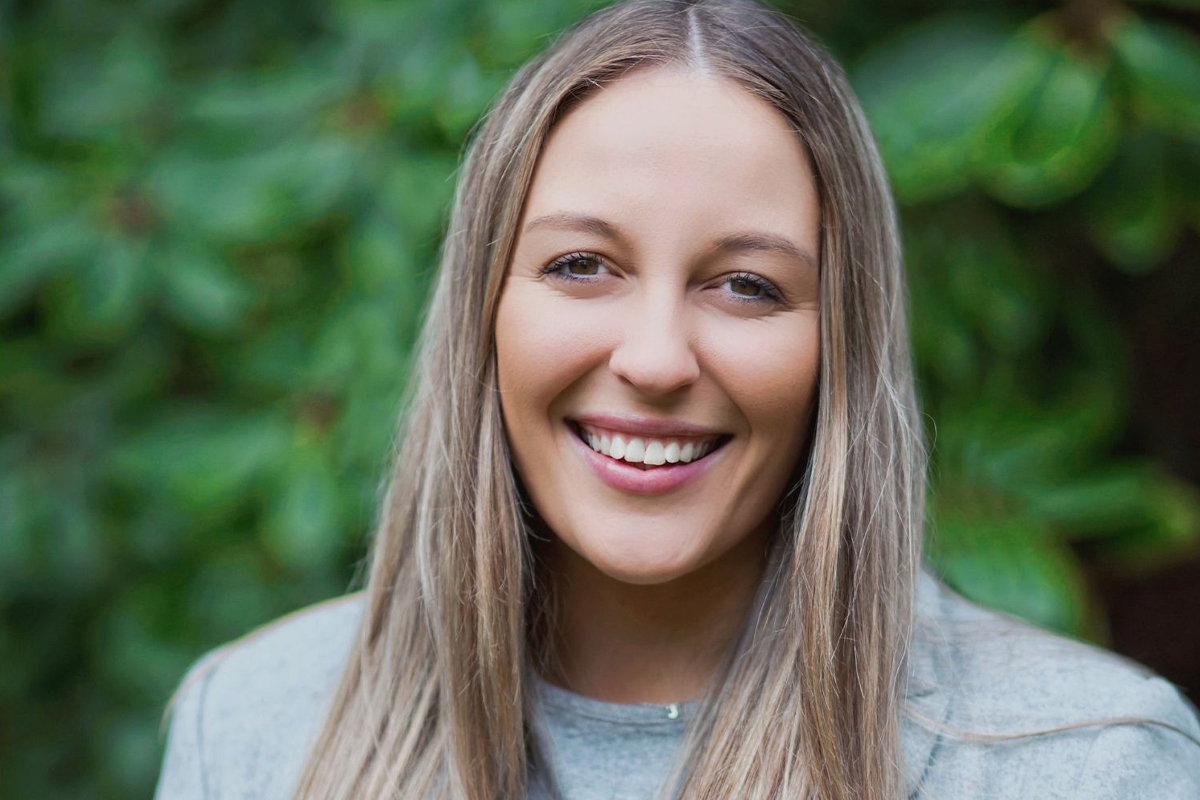

Jesikah Triscott
Kaitakawaenga / Engagement Team Lead
Since starting in the Sustainability Office in 2019, I have contributed not only to the initiatives and services that we offer in the Sustainability Office, but across the University and into the wider community.
My initial role was to run some student engagement events such as talks and fair-trade stands. This has grown through taking on extra responsibilities, stepping up to challenges, and leading innovations. The impact has included supporting the delivery of the 2019 ACTS conference, developing and implementing an engagement programme (Green Your Scene), establishing a group of part time employed student leads (Tētēkura), Establishing Te Oraka (The Good Space), integrating a treaty based bicultural approach to sustainability, creating collaborations with groups in the wider community, and developing a brand and engagement strategy for student to student communications and media.
This work has been diverse. This has placed my media skills at the centre of leading change through positivity.
Sustainability Champion – Staff
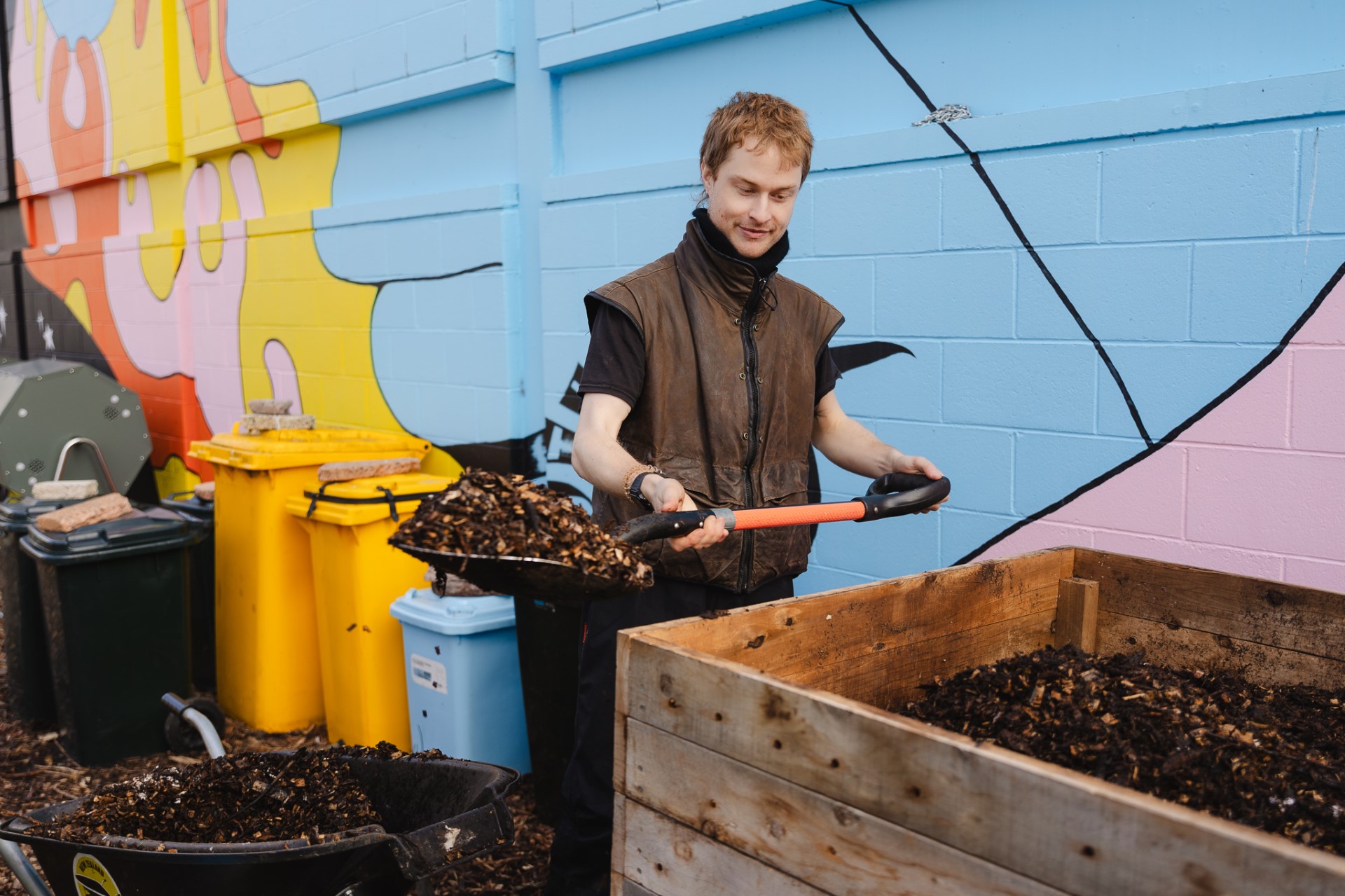

Liam Hoffman
Resource Recovery Assistant – Compost Master
I manage and run Pōpopo at the Otago Polytechnic/Te Pūkenga, which is the only large-scale composting hub in the New Zealand tertiary sector that recycles all of the food waste produced by our on-campus facilities including our culinary school, student residences, staff common rooms, cafes, and campus organics bins. This food waste is combined with our compostable packaging and gardening waste to produce nutrient-rich compost and vermicompost (worm castings) that is used to feed the various food gardens and permaculture beds we have on campus. These in turn produce free organic foodstuffs for any staff and students that want or need fresh, locally grown produce.
Recycling our organic waste means that we avoid emitting tonnes of highly potent methane and my work alone is the equivalent of taking at least 10 internal combustion vehicles off the roads on an annual basis. As part of my work, I run workshops for the many individuals and organisations that also wish to make a difference and secure a brighter future for us all.
Sustainability Champion – Staff
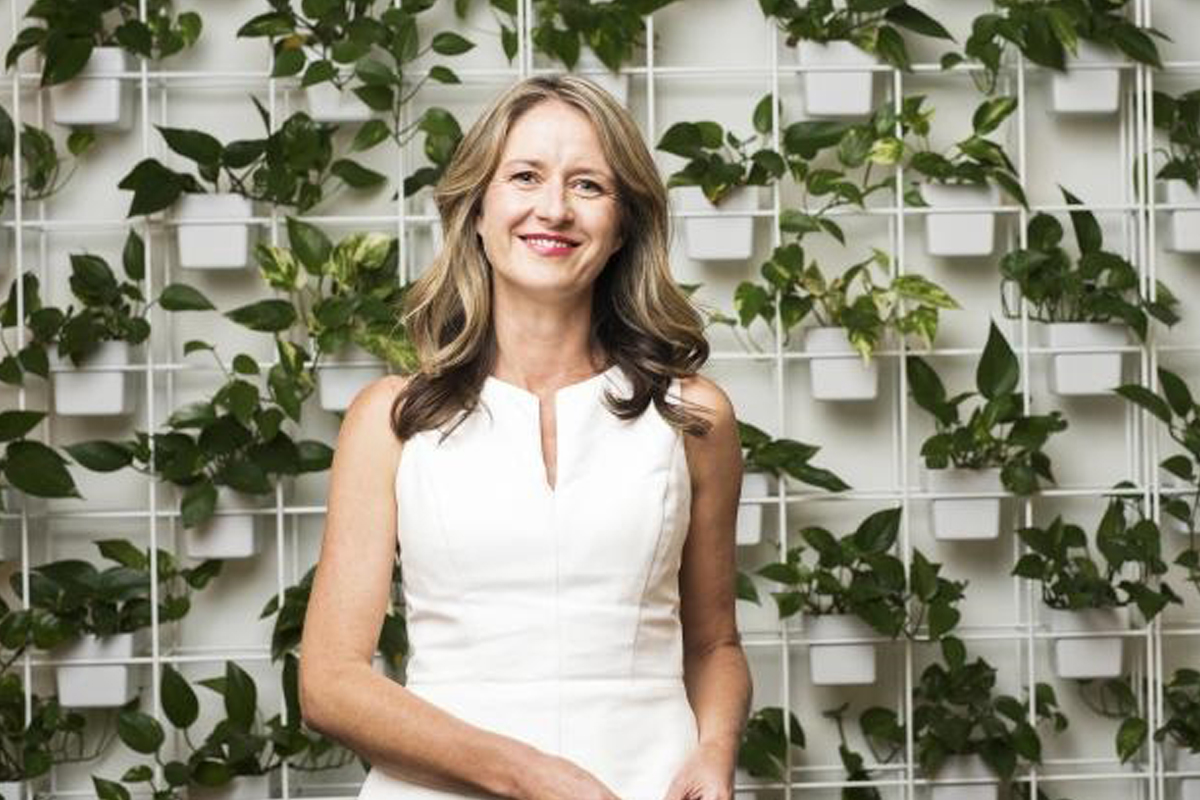

Melissa Edwards
Director of the Executive MBA program and Research Director of the Centre for Business and Sustainable Development
Melissa is a Director of the Executive MBA program and Research Director of the Centre for Business and Sustainable Development at the UTS Business School. She is also the inaugural Climate Action Fellow for the Australian Business Deans Council. Melissa has won multiple awards for innovation for her expertise in embedding sustainability pedagogy into programs in Business and Transdisciplinary studies and for applied industry research on newly emerging sustainability topics. Globally, she works with colleagues to create and establish the field of sustainability in management education and contributes to two United Nations PRME working groups on the sustainability mindset and an action group on climate and environment.
At UTS and beyond she is a deeply inspiring sustainability practitioner who leads by example, facilitating the involvement of others and mentoring students and peers. She walks the talk by supporting the Higher Education sector to achieve positive climate and sustainability impacts.
Sustainability Champion – Staff
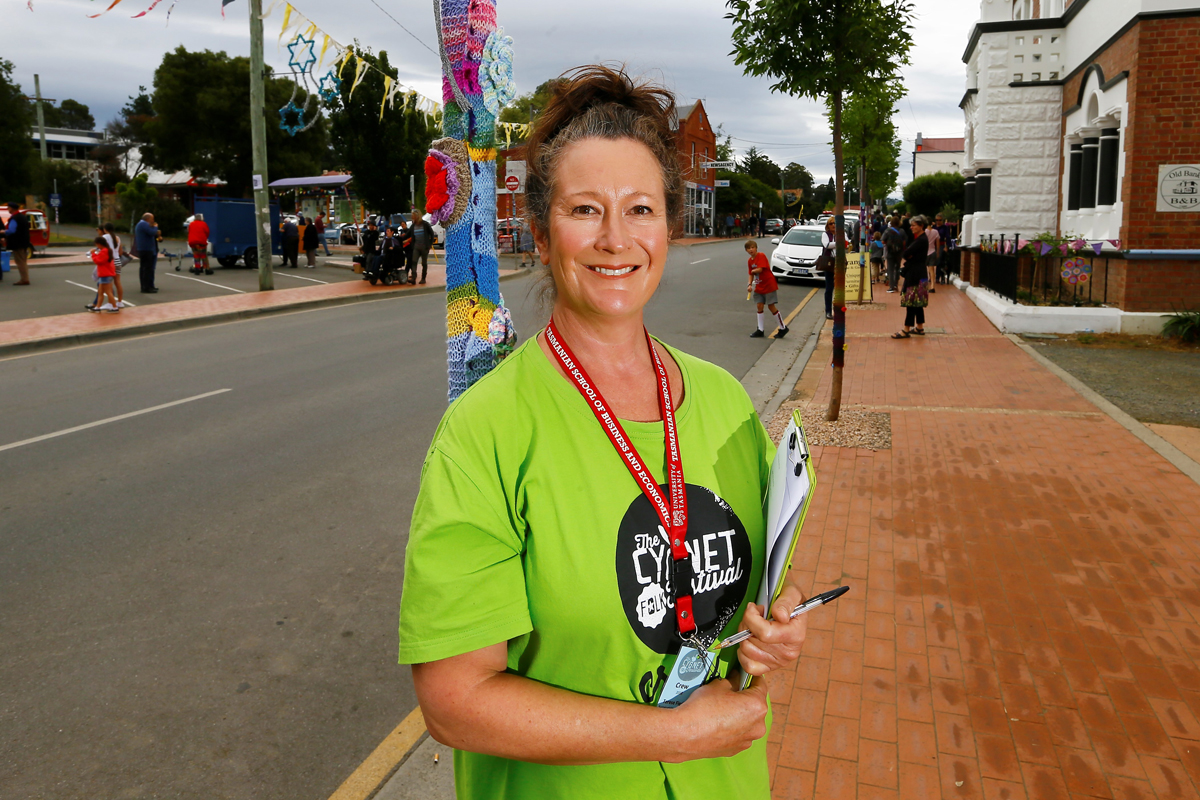

Terese Fiedler
Senior Lecturer in Accounting / Associate Head of Learning and Teaching Performance
Terese Fiedler is a University of Tasmania (UTAS) educator, researcher and the Associate Head of Learning and Teaching for the Tasmanian School of Business and Economics – a ‘warrior’ accountant. She has a passion for changing traditional perceptions about accounting, so it becomes a tool for accountability and sustainability. She has transformed first-year accounting at UTAS, the Accounting Major and High School education so that students know its power for creating a better world. Her research is centred on social and environmental accountability, highlighting the use of accounting for human and planet welfare. She has provided recommendations for changes in taxation to create circular economies and brings this knowledge to the classroom, inspiring real change. Understanding the potential of accounting to empower marginalised groups, she developed the First Nations Accounting Mentoring Program and Indigenised the accounting educational space. Her initiatives, aligned with the United Nations Sustainable Development Goals, contribute to a broader societal impact.
Sustainability Champion – Student/Winners
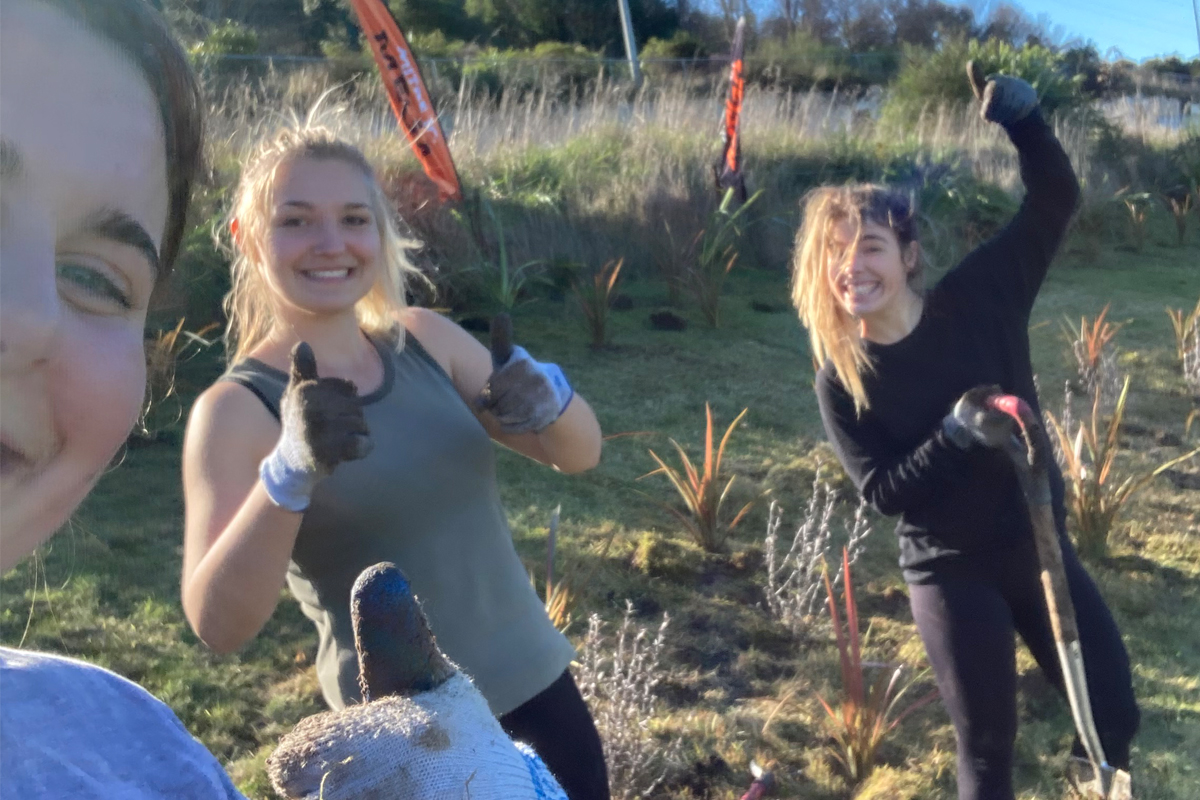

Demi Lawrence
TĒTĒKURA – STUDENT LEAD OF THE SUSTAINABILITY NEIGHBOURHOOD
I will spend about 400 hours on sustainability work this year and spent about 300 last year while studying at University for my future sustainability career – this included my sustainability internship research that showed Dunedin Hospital could halve food waste.
As Students for Environmental Action Otēpoti co-president (2022, 2023), I initiated collaborative relationships with sustainability groups across campus and the community to reduce competition and create greater impact, while also starting a biannual Clothes Swap, now S.E.A’s most popular event.
I successfully proposed being the University Sustainability Office’s first dedicated Tētēkura – Student Lead for the Sustainability Neighbourhood to create peer guidance to help student residents lead sustainable lives.
On a sponsored two-year Student Leadership Award, I am doing hands-on sustainability volunteering.
I aim to do mahi (work) with immediate and long-lasting effects myself, while also taking roles that can influence others and bring people together so sustainability becomes more sustainable.
Sustainability Champion – Student/Winners
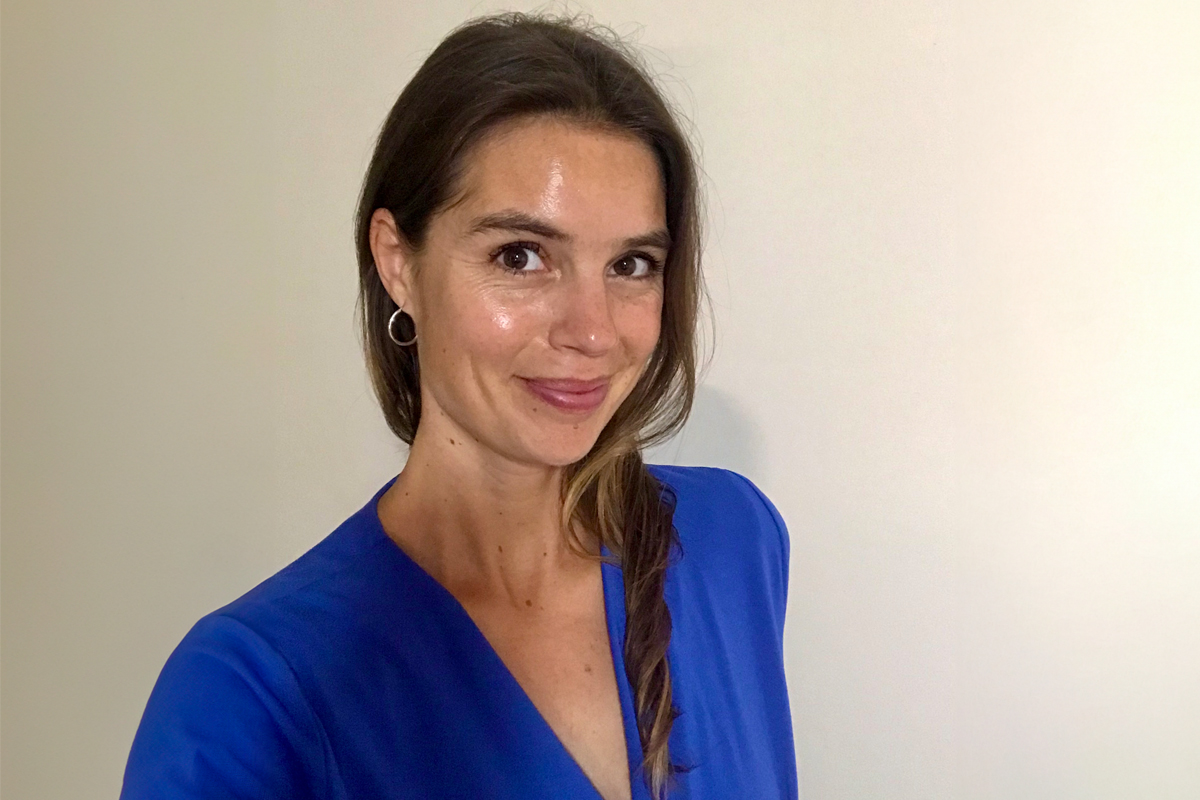
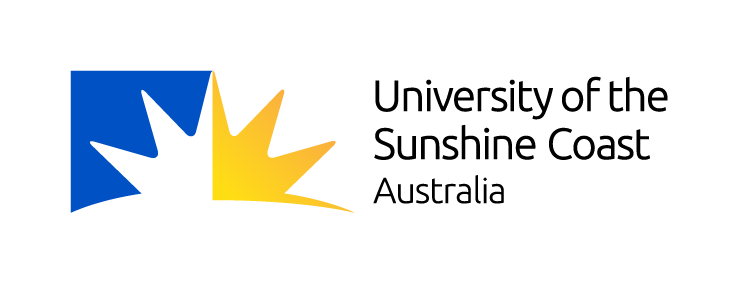
Fien Van den Steen
Student Bachelor Environmental Management
Inspiring accessible sustainability. That is my mission. I accomplish this by taking and giving others agency to create ripple effects that contribute to transformative change. A powerful and hopeful antidote to the challenging times we face.
To inspire sustainable and accessible sustainability, I have taken actions aimed at empowering students, staff and the wider community. Since I started studying environmental management two years ago, I have been going above and beyond in student representation from advocating and volunteering for student groups to representing the entire student population as Co-Chair of the Student Senate and member on the University Council. I launched and have been leading the Enactus division at our university over the past year in which we won 2 prizes at the National competition. Finally, I co-launched a series of upskilling sustainability workshops honouring my Green Ambassadorship to Humanitarian Affairs.
Sustainability Champion – Student
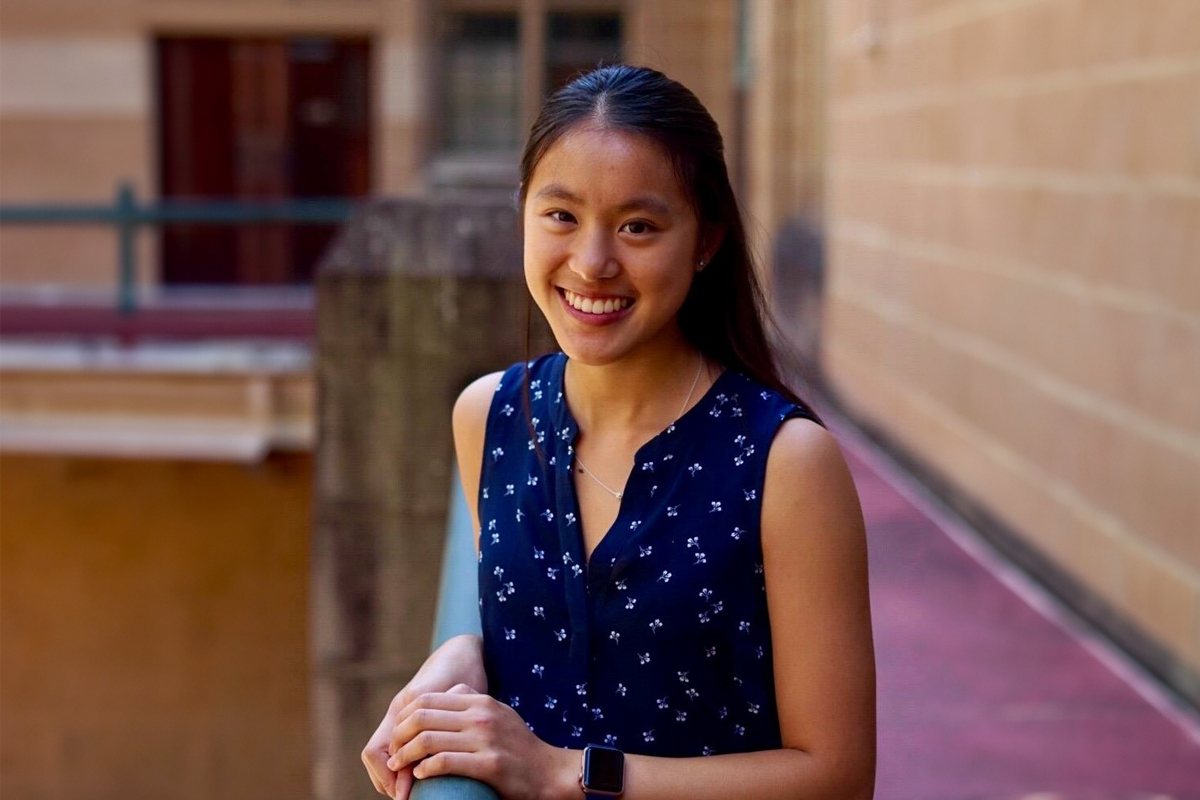

Jacinta Wong
Year 4 Medical Student (2022) – currently an intern at Gosford Hospital (2023)
As a medical student at the University of Sydney in 2022 I was involved in promoting and improving sustainability principles at several levels, including at our clinical school, the University, and local health district. I held various student leadership positions, including President of the Northern Clinical School Society (2021), Sustainability Representative for my clinical school on the Sydney Medical School Sustainability Leadership Group, and the Northern Sydney LHD Planetary Health Committee. In these roles, I worked with teams to connect students and junior doctors with tangible sustainability projects – including sustainability education related to the impact of climate change on health and embedding sustainability principles into clinical practice. Since starting my current internship and taking on a new leadership role as the Environmental representative in the Central Coast Resident Medical Officers Association, I feel empowered to continue working towards achieving a Net Zero healthcare system and inspiring change.
Sustainability Champion – Student


Louis Walmsley
SDG Coordinator Monash Association of Sustainability, Office Bearer Monash Student Association’s Environmental and Social Justice Department, Masters of Environment and Sustainability Student
Louis is an exceptional student sustainability leader at Monash University. His passion and dedication to sustainability have made a significant impact on the community. Louis’s values revolve around sustainability, which is evident upon meeting him. He actively participates in various sustainability groups, demonstrating his commitment to creating a more environmentally conscious society.
One of Louis’s notable involvements is with Precious Plastic Monash, where he organizes remarkable events and fosters collaboration among like-minded individuals, student groups, and staff. His contributions to the Monash Association of Sustainability have allowed him to conduct valuable research on plastic usage and climate action, resulting in positive changes within the university.
Through his work with the Monash Student Association, Louis has engaged hundreds of students in fun and interactive sustainability initiatives. He took the initiative to organize a sustainability food fair, which was one of the largest sustainability-related events held at Monash post-COVID. This accomplishment is a true testament to Louis’s hard work and creativity.
Louis is an outstanding student leader whose efforts in sustainability have had a lasting impact on Monash University and its community. His inspiring nature resonates with everyone who knows him.
Sustainability Champion – Student
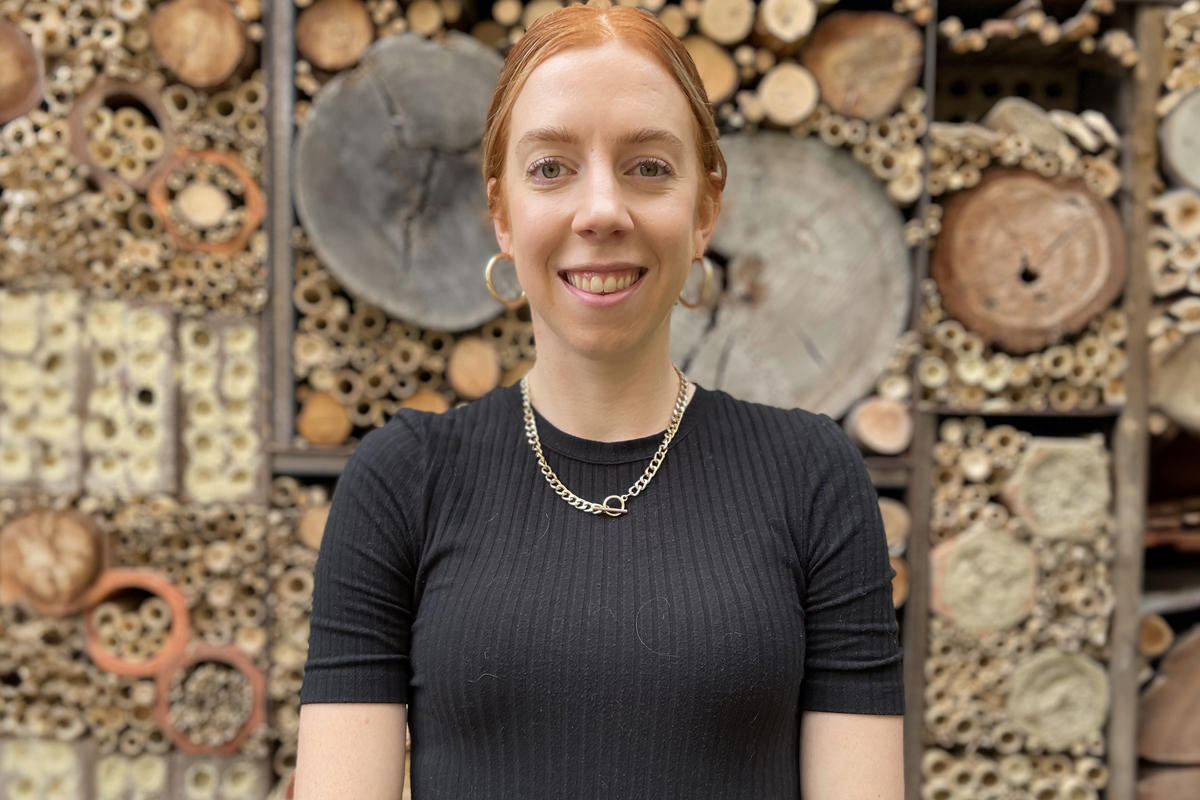

Madeline Taylor
Master of Environment (Conservation & Restoration) student / Biodiversity Engagement Officer
Urbanisation presents many challenges and opportunities for biodiversity. Species-rich urban spaces are increasingly being acknowledged for their positive impact on human wellbeing and nature connectedness. This motivated me to conduct a research project on the contributions of urban BioBlitzes to local biodiversity knowledge. Findings from my research have informed event design of BioBlitzes I coordinate for staff and students at the University of Melbourne. These events have inspired +80 people to connect with nature and contribute +1,500 biodiversity records to science. I have supported the research of others through co-chairing Victorian Biodiversity Conference, which engaged +600 attendees in the latest ecological research. As an Urban Bushland Initiative committee member, I have fostered community’s connections with nature by delivering three community events, resulting in the construction of several wildlife hollows and planting of +3,400 trees. I aspire to coordinate regional and state-wide projects that enhance and promote our unique urban species.
Sustainability Champion – Student/Winners
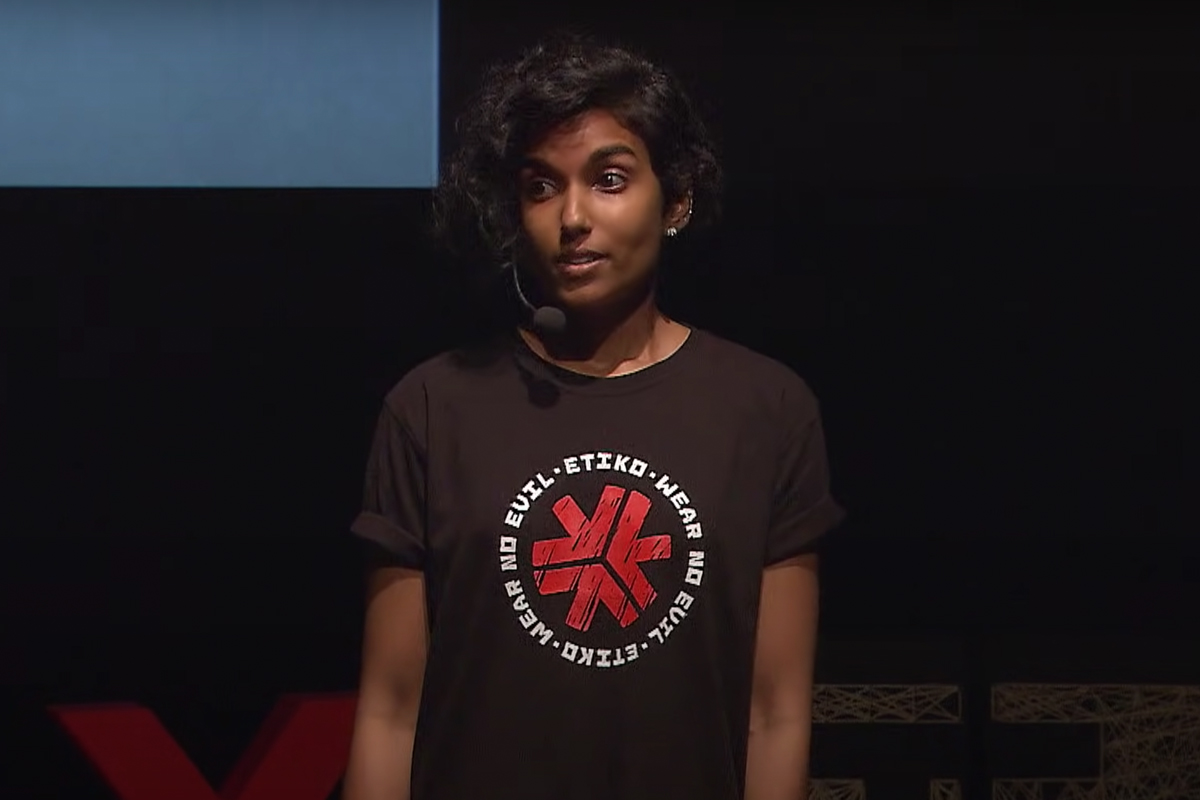

Trisha Striker
Sustainability Integration Program for Students (SIPS) fellow
I am passionate about the flourishing of human beings. I believe all people should have the freedom to choose the life that they consider flourishing. My advocacy and actions aim to ensure equality and equity. I am passionate about the health and wellbeing of people from migrant, refugee, and asylum seeker communities here and everywhere.
By providing education about slavery and exploitation, I use my voice to bring visibility to those made invisible in our global supply chains. At the University of Tasmania (UTAS), I work with staff and students to prevent slavery in clothing supply chains through advocating for Fairtrade certification. As a UTAS Sustainability Fellow (SIPS), working over one year, both UTAS and the Tasmanian University Students Association (TUSA) have started to purchase Fairtrade certified products, resulting in a large Tasmanian based supplier stocking Fairtrade certified options for all clients, creating far reaching impacts for the wider community.


